Criminal Minds: Episode 16
by Saya
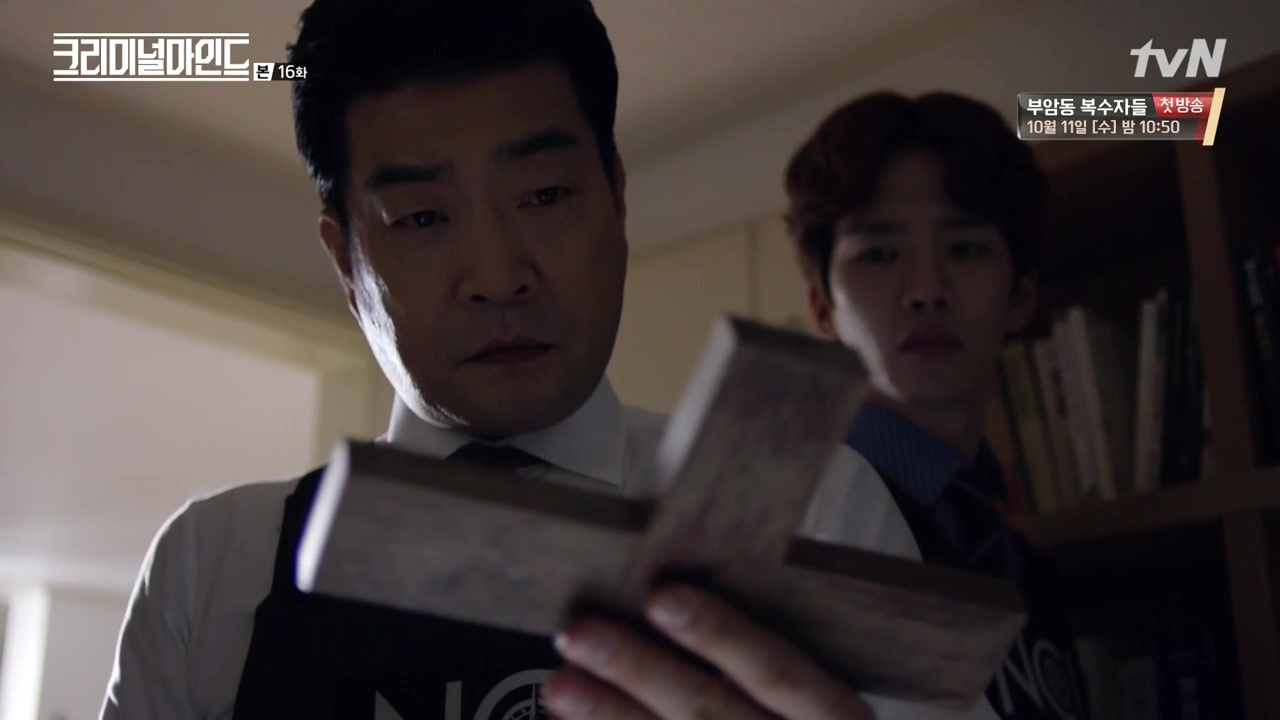
With a vigilante on the loose, today’s case invokes big questions about justice and the law, and what happens to justice when the law fails. It’s a question that particularly gets under our profilers’ skin, because they struggle with it every day themselves, especially Ki-hyung. But for others, the more egregious the failure, the less it matters whether there is a line between what is legal and what is just.
[geolocator_show for=”PH”]
EPISODE 16 RECAP
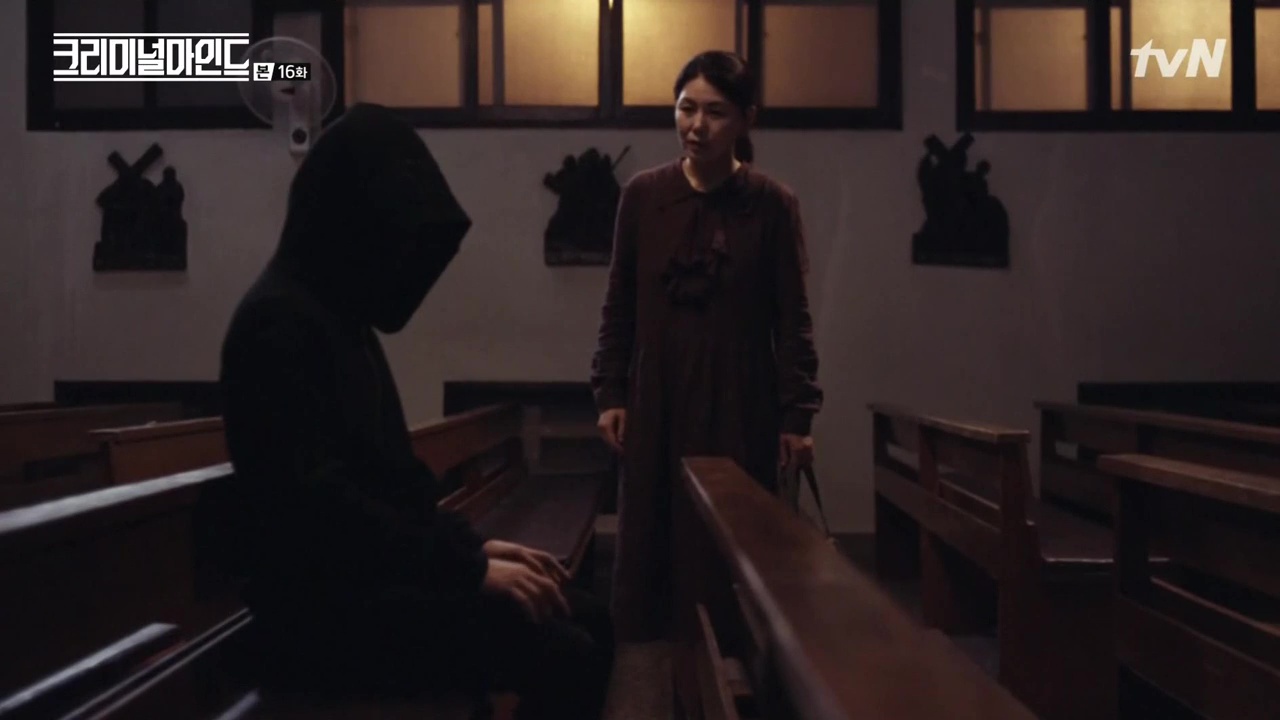
A woman notices a hooded man on her way out of an otherwise empty church at night. He doesn’t respond when she asks if he’s okay, and she gets creeped out by the strange typing motion he keeps doing with his fingers and hurries on.
After she’s gone, he intones his mantra: “Only public law shall be like water, and justice shall flow like sewage.”
In an inner room, the priest also finishes for the night. But as he leaves, the hooded man ambushes him and slits his throat. The killer repeats his mantra over the body.
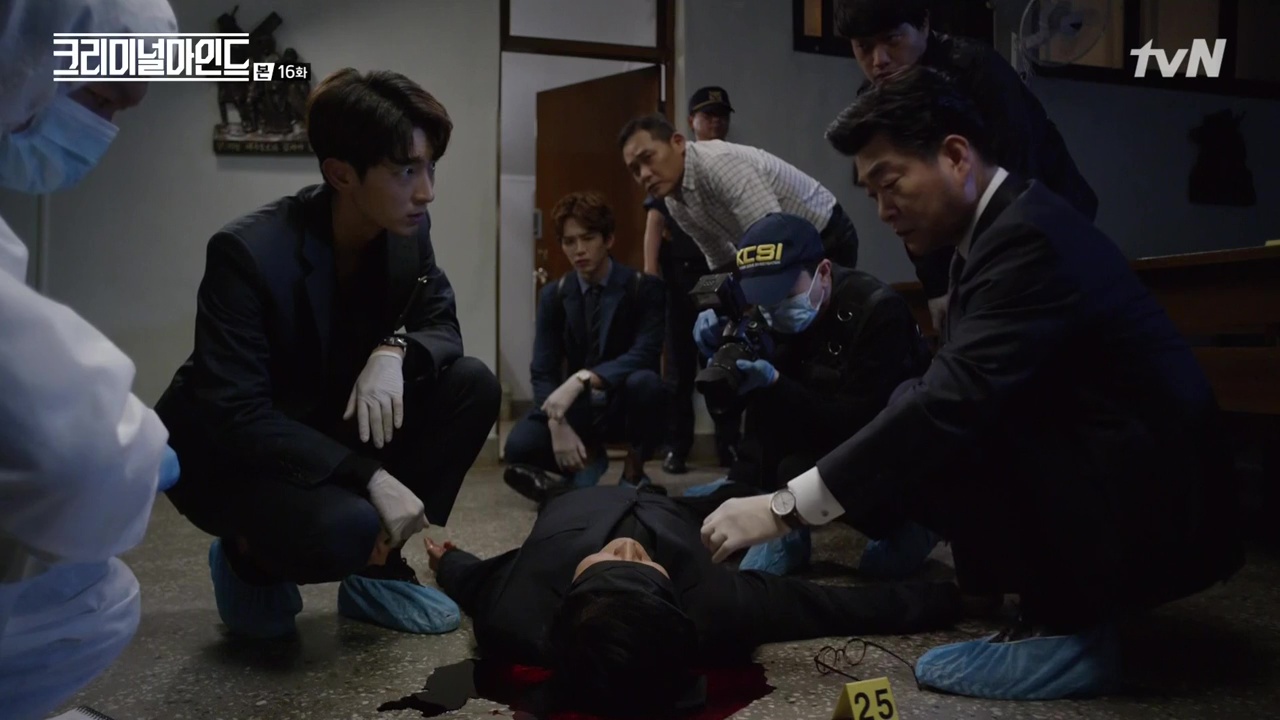
The NCI reaches the scene, and Ki-hyung notes that it’s the first murder this killer has committed in a public place. There’s no sign of him on the CCTV, and he sends Sun-woo and Min-young to question the woman who had seen him. Hyun-joon examines the victim and realizes from the blood pattern that he was blindfolded after his murder.
The woman witness tells Sun-woo and Min-young that she didn’t see the killer’s face. Hyun-joon comes in and asks what she remembers about him. She recalls the way he kept moving his fingers, as if he were playing a piano. The woman fears for her life, but Hyun-joon observes that the killer isn’t targeting people randomly, which means they have to discover what ties the victims together.
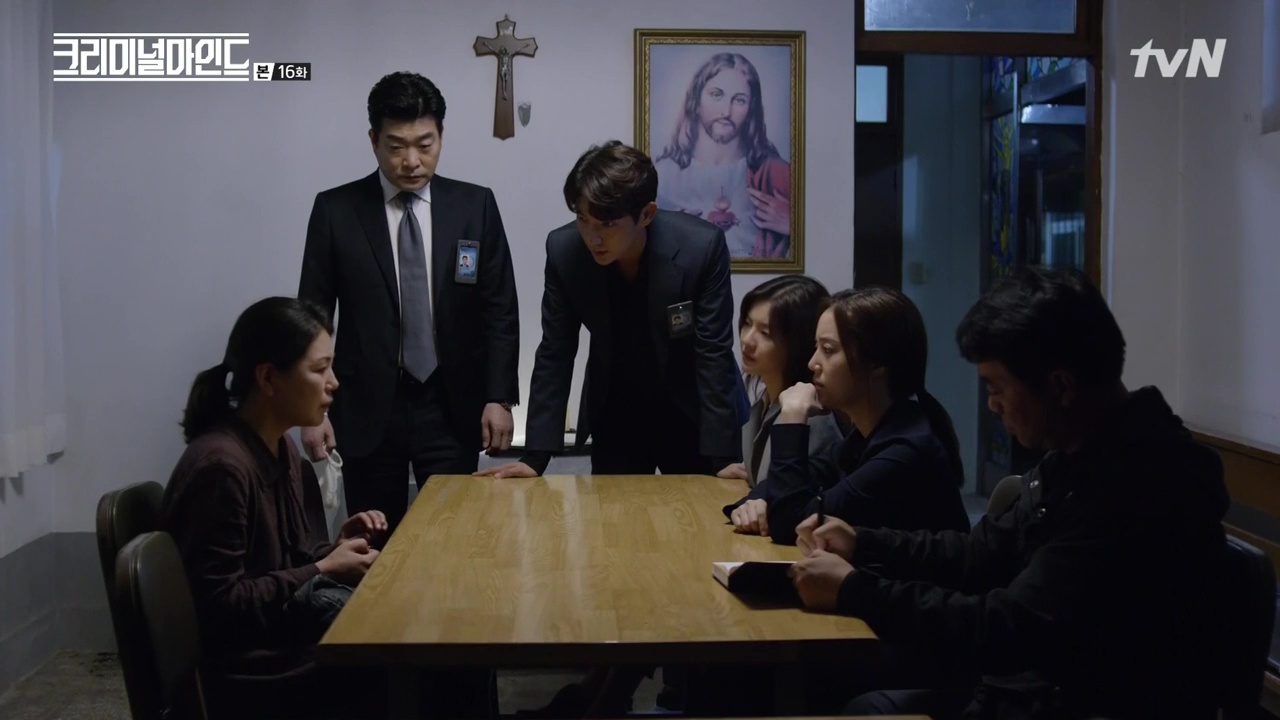
Remaining with the body, Han notices something rammed into the victim’s ear, and winces as the forensic officer extracts a stone blade, as with previous victims. Nana informs Ki-hyung that the victim had been acquitted of child molesting, the charges against him dropped a year ago thanks to lobbying by his congregation.
Separately, Hyun-joon asks Nana to look into the backgrounds of the previous victims to see if they also have any acquittals. She confirms that both previous victims do, and Hyun-joon runs back inside to share the information with Ki-hyung, the link between the victims now clear. As Ki-hyung picks up the blood-soaked blindfold, we linger on a painting of similarly blindfolded Lady Justice.
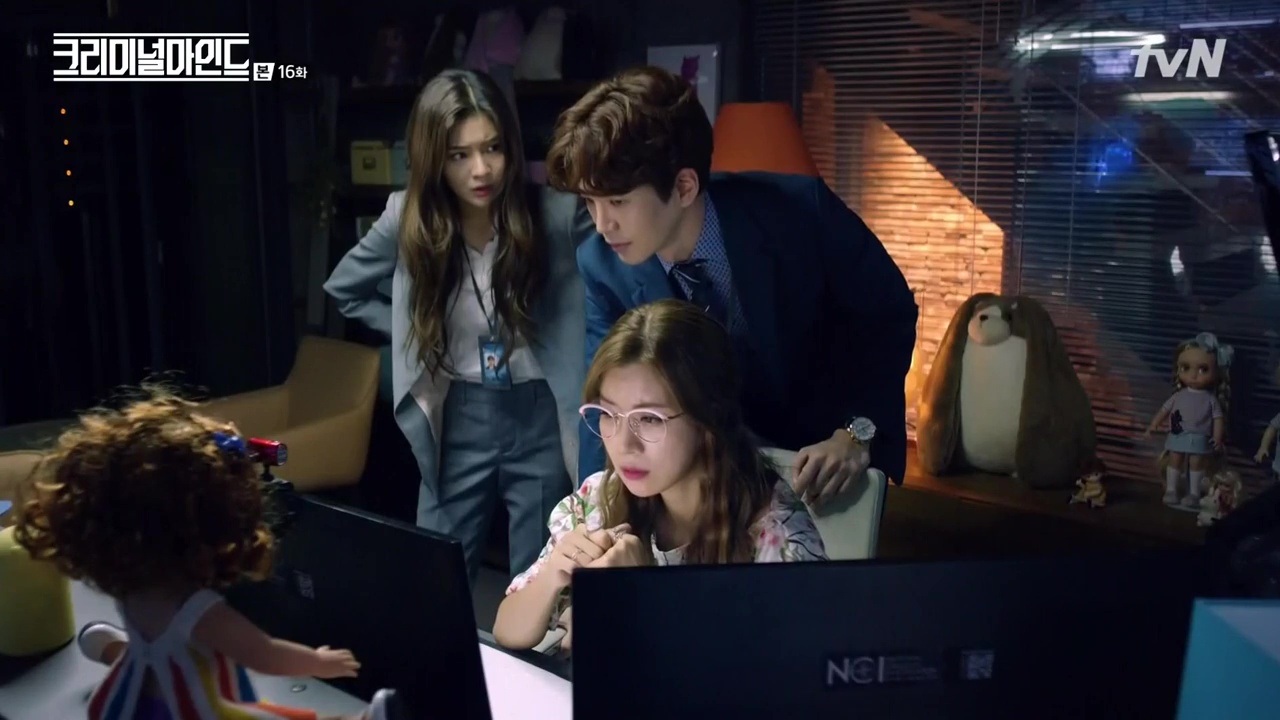
Han seeks out Nana and shows her that the blade left in the victim’s ear has a design on it. They both recognize it as a guardian figure used in talismans, and Min-young realizes that that means the killer saw his victims as evil beings he had to defeat.
Hyun-joon briefs the room full of NCI and police officers on the culprit, describing him as a thorough killer: He first attacks with a knife, then a stone blade inscribed with a symbol. The blindfold symbolizes the concept that justice is blind, and also shows that he’s involved in the legal profession. Ki-hyung adds that it’s likely he was a victim of a violent crime in the past.
Sun-woo warns that this information not be released to the press, since it would only stimulate him to kill more. The chief detective plans to cross-reference all the legal teams involved in the victims’ cases, but Ki-hyung thinks their perp is someone who goes by unnoticed, his unremarkableness his best disguise.
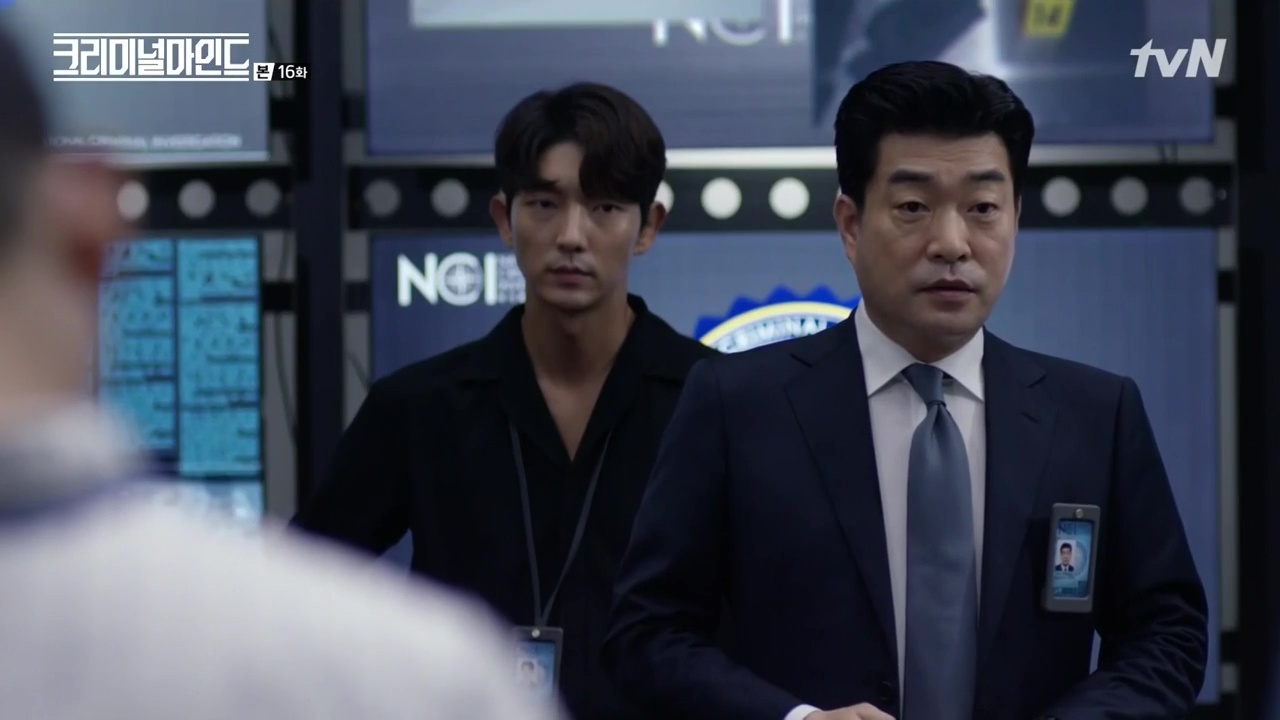
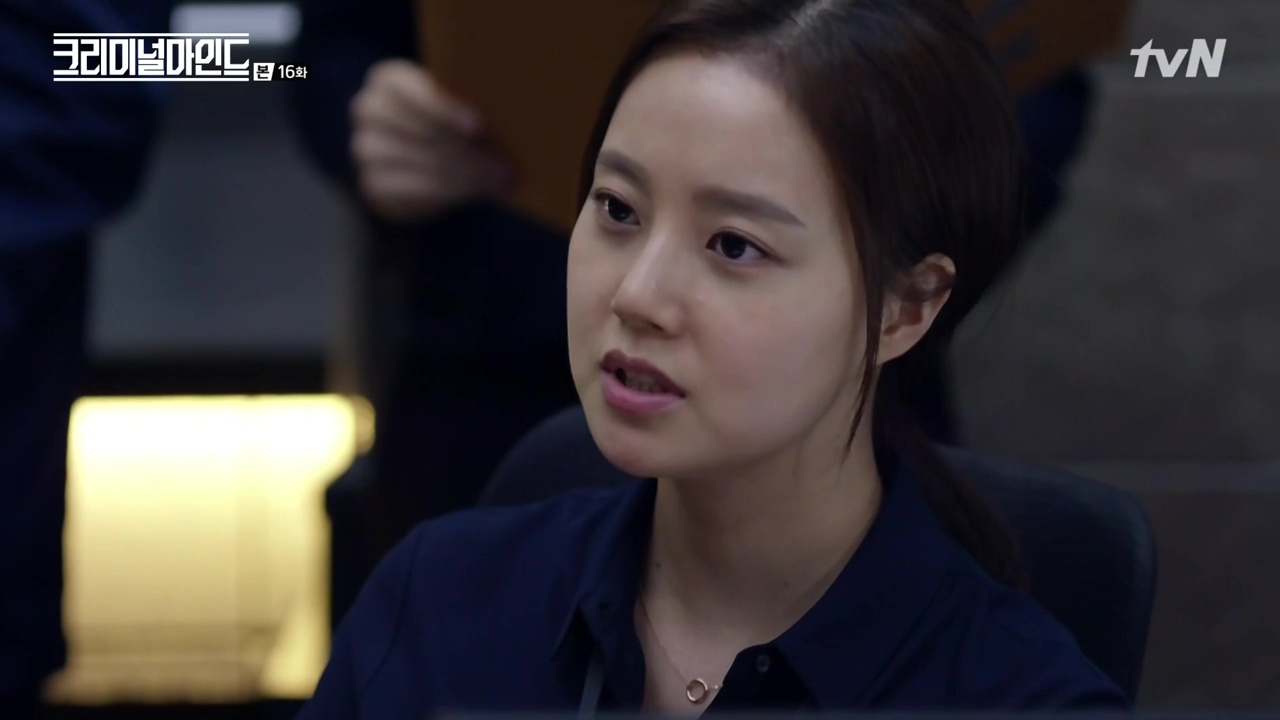
Elsewhere, the killer—wearing his murder-hoodie—gets off a bus, fingers moving the whole time. Not long after, the team receives the report of another murder, and Nana finds out that this victim was cleared of murder charges, thanks to the crucial testimony of a supposed witness.
Hyun-joon and Sun-woo are about to head out to check on that witness when they see that the news is already reporting on the vigilante murderer, having connected the deaths. Worryingly, it seems to be lauding the murderer for exercising justice where the law failed. Before leaving, Hyun-joon notes uneasily that the murderer isn’t the only one they’re fighting.
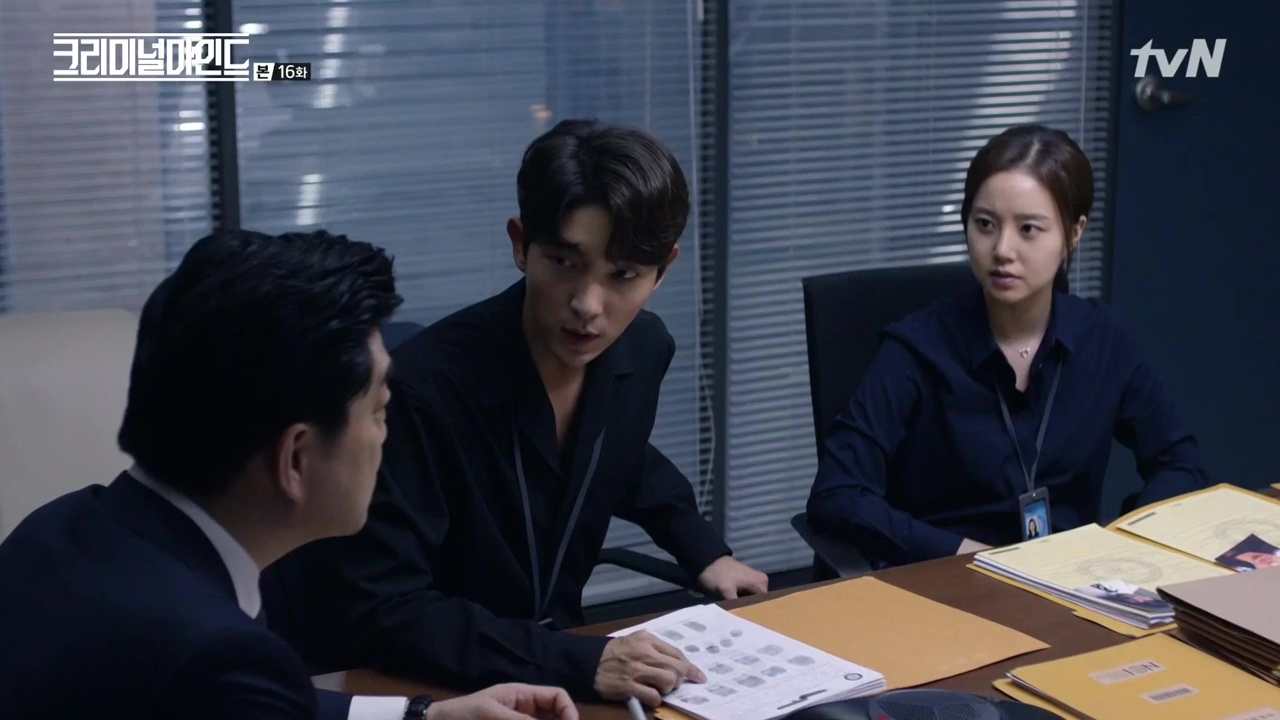
The remaining team is convinced that the information was leaked from within, by someone with unrestricted access to court records. Nana reports with concern about how many calls they’ve received praising the murderer and even seeking him out. Ki-hyung assigns Han and Min-young to seek out the source of the leak, and Nana to find out who first reported it.
Sun-woo and Hyun-joon are unable to reach the witness by phone, and we see the woman in question get off a bus… followed by the hooded murderer, all the way into her apartment building. Wait, that’s not our guy!
She’s nearly at her front door when she notices him. She tries to escape but he attacks her and drags her into a stairwell. By this time, the NCI team has reached her apartment building, and, hearing screams, Hyun-joon barrels into the stairwell and kicks the attacker away.
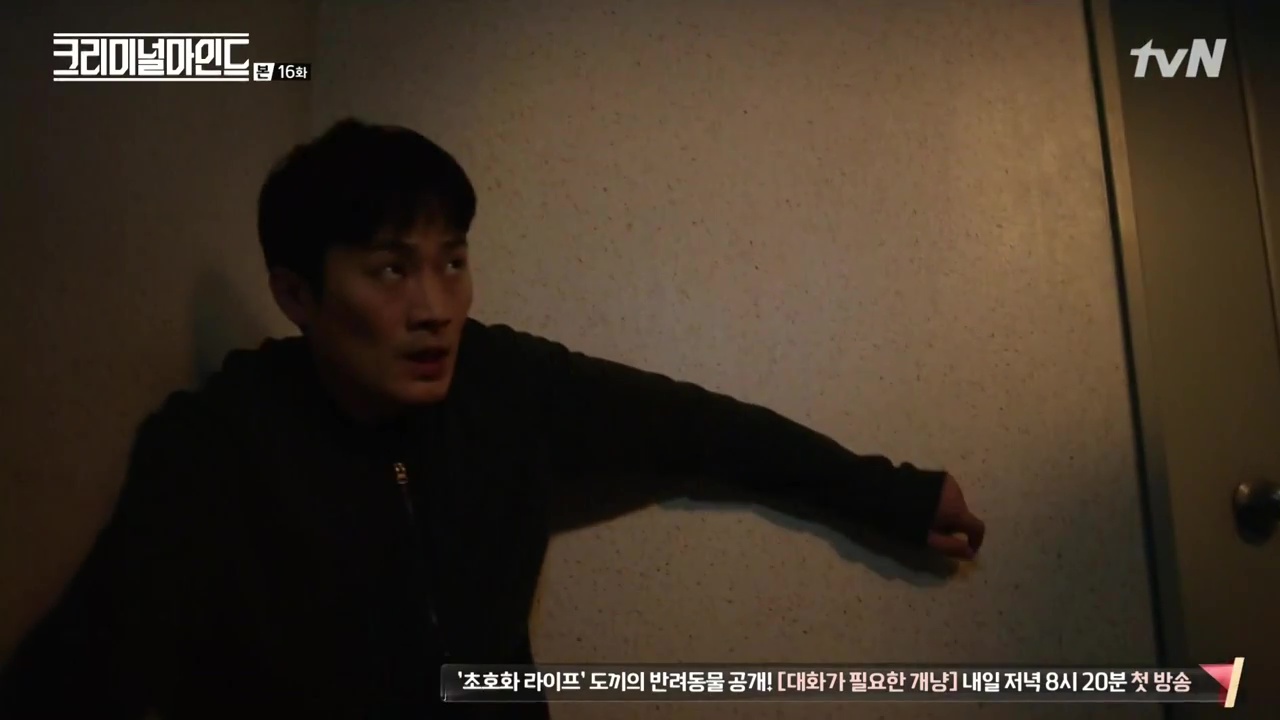
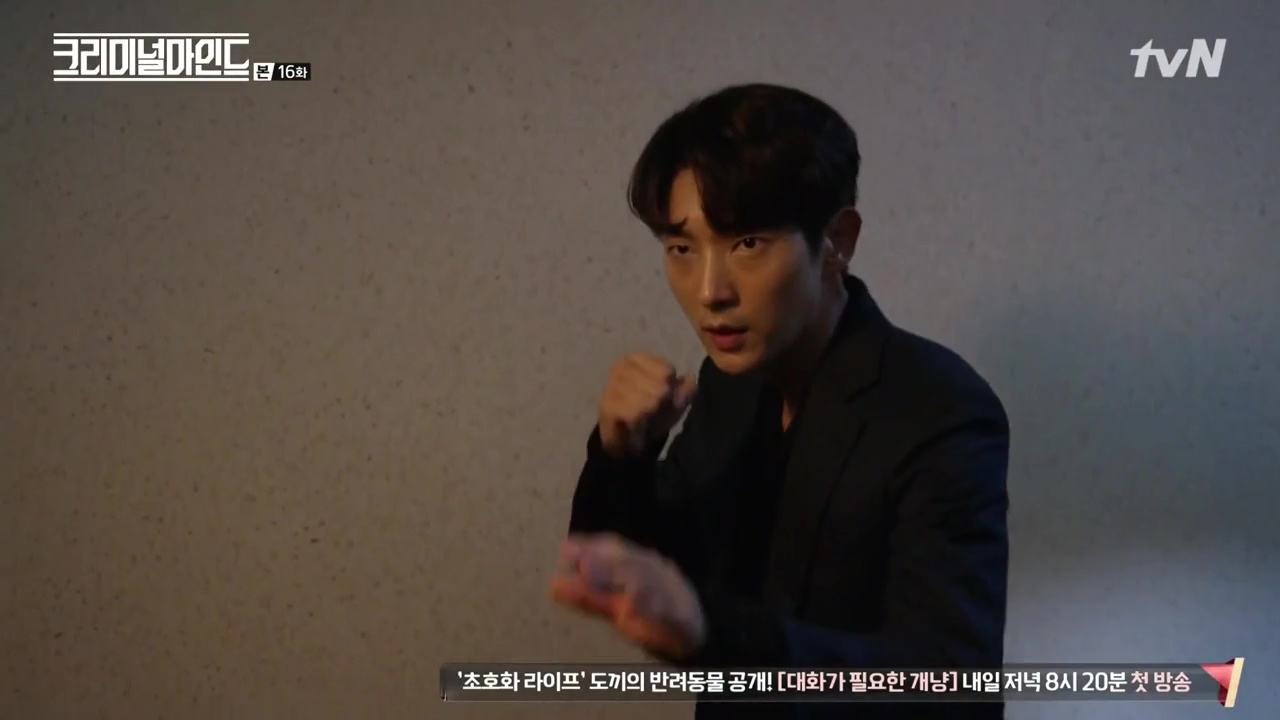
A fistfight ensues. Hyun-joon soon overpowers him and leads him away in handcuffs, while Sun-woo helps the victim. But as the camera pans out, we see the real hooded murderer further up the stairwell, fingers twitching.
The team learns that the suspect was a security guard at a bank and was the victim of a serious robbery the previous year, fitting their profile. Sun-woo tells them that he confessed to all the murders, and when Hyun-joon questions him, the suspect waxes fanatical on the necessity of removing such scum from society, angry that they got away with such unforgivable crimes.
Ki-hyung questions him about the other victims, asking if that’s why he stabbed one in the heart. The suspect regrets giving him such an easy death—not realizing he’s been caught lying (the victims were, of course, stabbed in the ear). He insists to the end that he did it all.
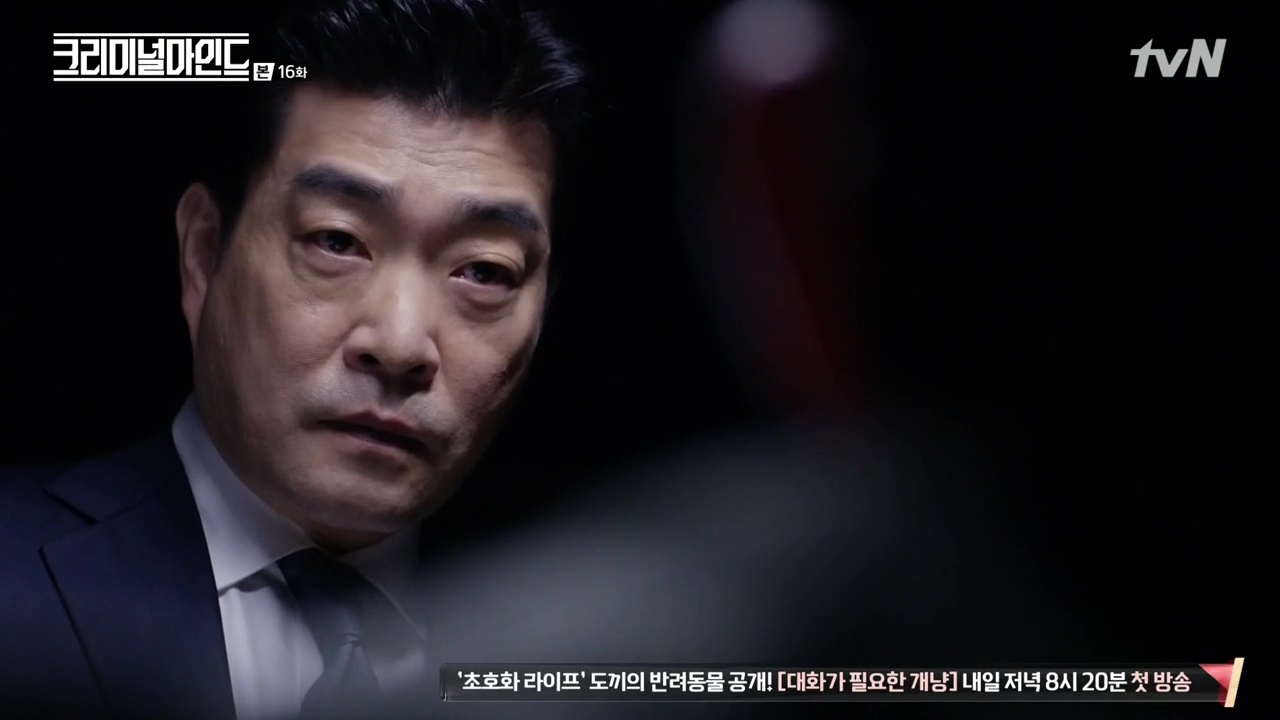
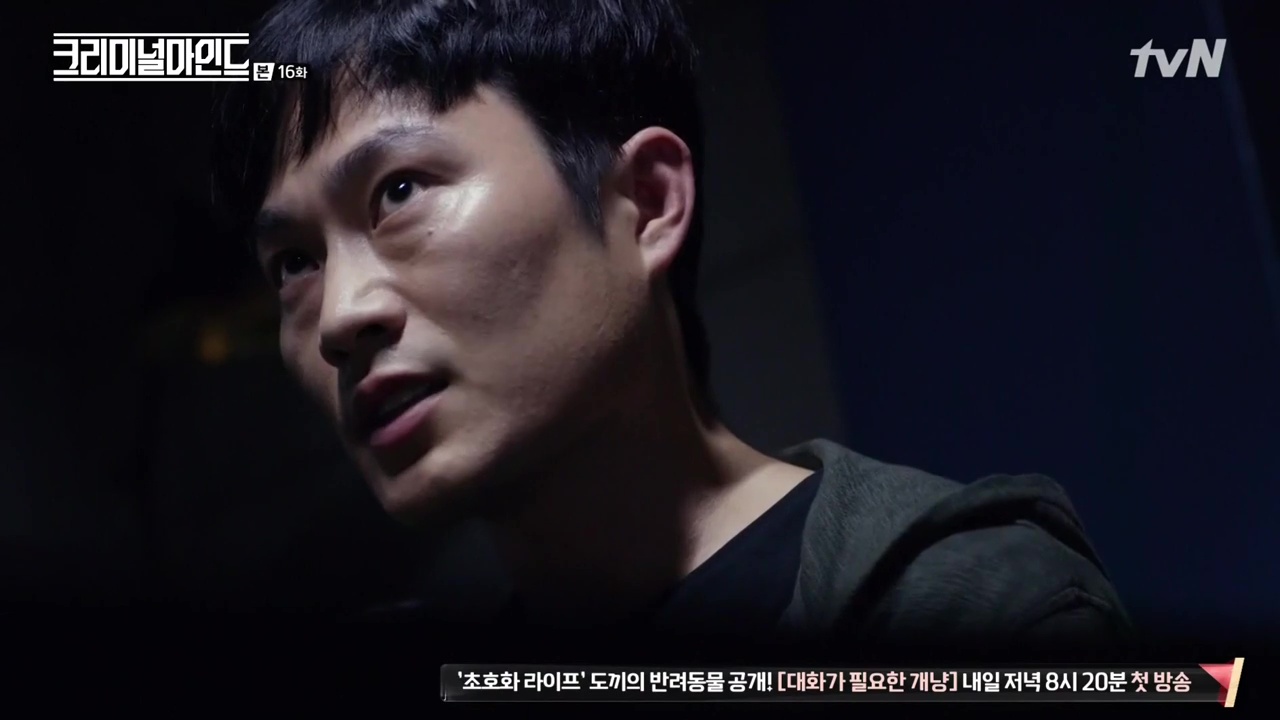
After finding out their suspect’s a dud, Min-young plans to contact the reporter who broke the news, hoping for a lead. Meanwhile, Hyun-joon learns from Nana that the only thing she could find in common in all the murder victims’ acquittals was the courthouse where the hearings were held.
Min-young and Han seek out the reporter—Reporter Han—who snarks at the mighty NCI coming to find him. He’s not much inclined to help them since Ki-hyung declined an interview request in the past, but says that he will on the condition that he gets to meet Ki-hyung directly now.
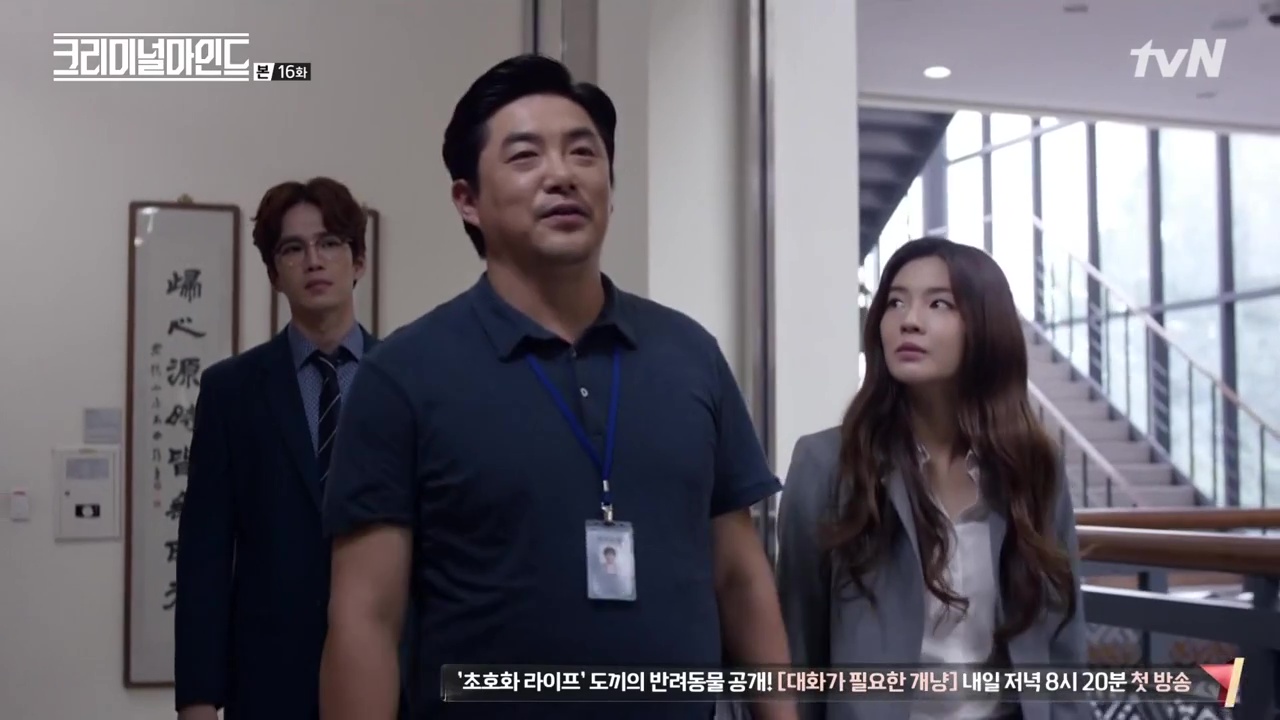
According to Nana’s intel, Hyun-joon and Sun-woo head to the Seoul Eastern District Court. Between themselves, they figure their killer is a near-invisible presence with full access to court records. The focus sharpens on a painting on the courtroom wall: blind Lady Justice.
They question an official about whether he’s noticed someone who is sympathetic to vigilantes. And there, at the court clerk’s desk is our (un)hooded murderer, listening in. The official tells them that there’s not a person there who wouldn’t want appropriate punishment for the ones who’d gotten away.
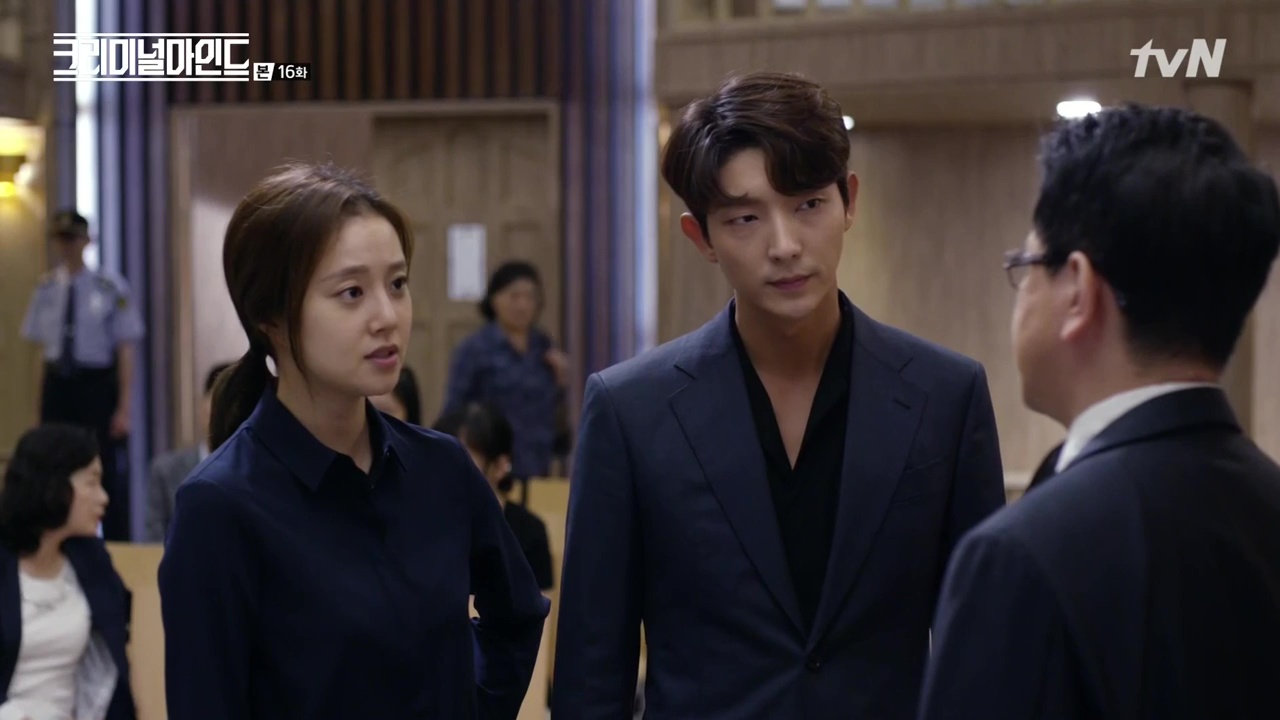
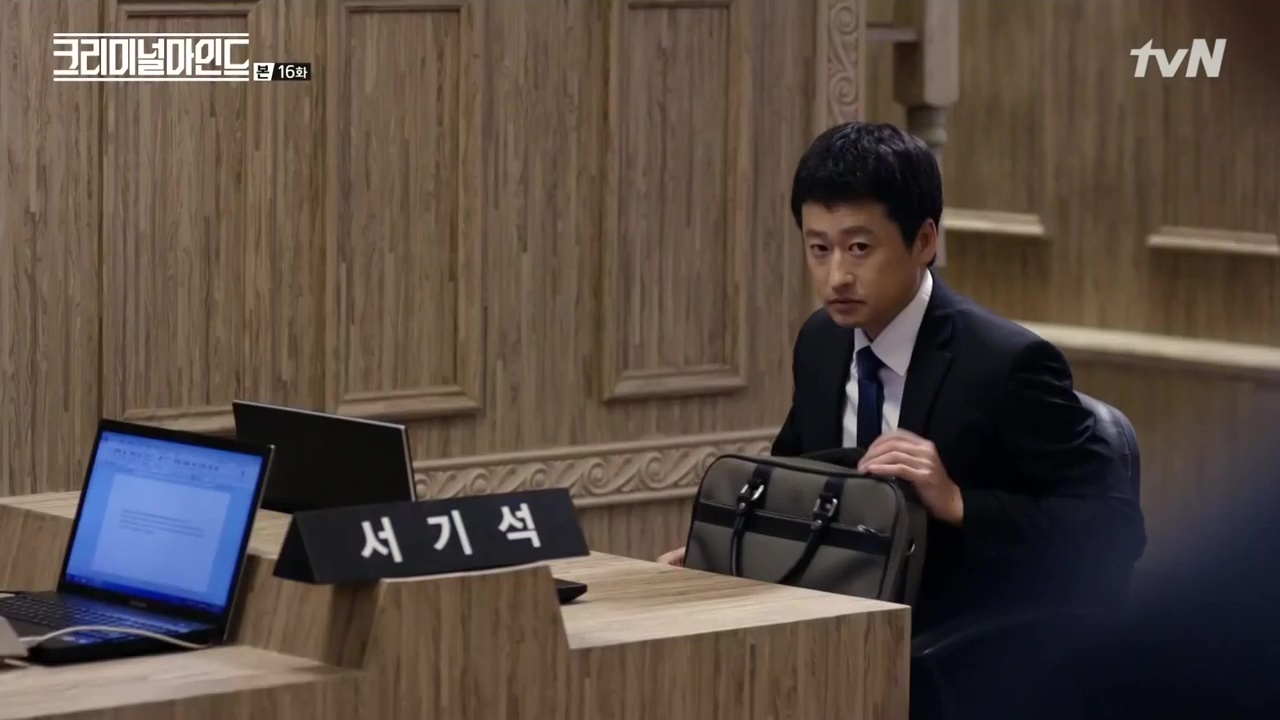
Reporter Han gets his meeting with Ki-hyung. Criticizing the police, he says the killer has been ensuring the public’s safety by taking justice into his own hands. “So are you saying a murder suspect is actually a hero?” Han asks.
In answer to Ki-hyung’s question, Reporter Han supposes their perp must have been the victim of a violent crime himself. Ki-hyung wonders if that’s why he thinks he’s a hero, but Reporter Han remains noncommittal. They next show him photos of the ear-stabbing and Ki-hyung asks whether he thinks it was intended to be symbolic. Hey, isn’t profiling your job?
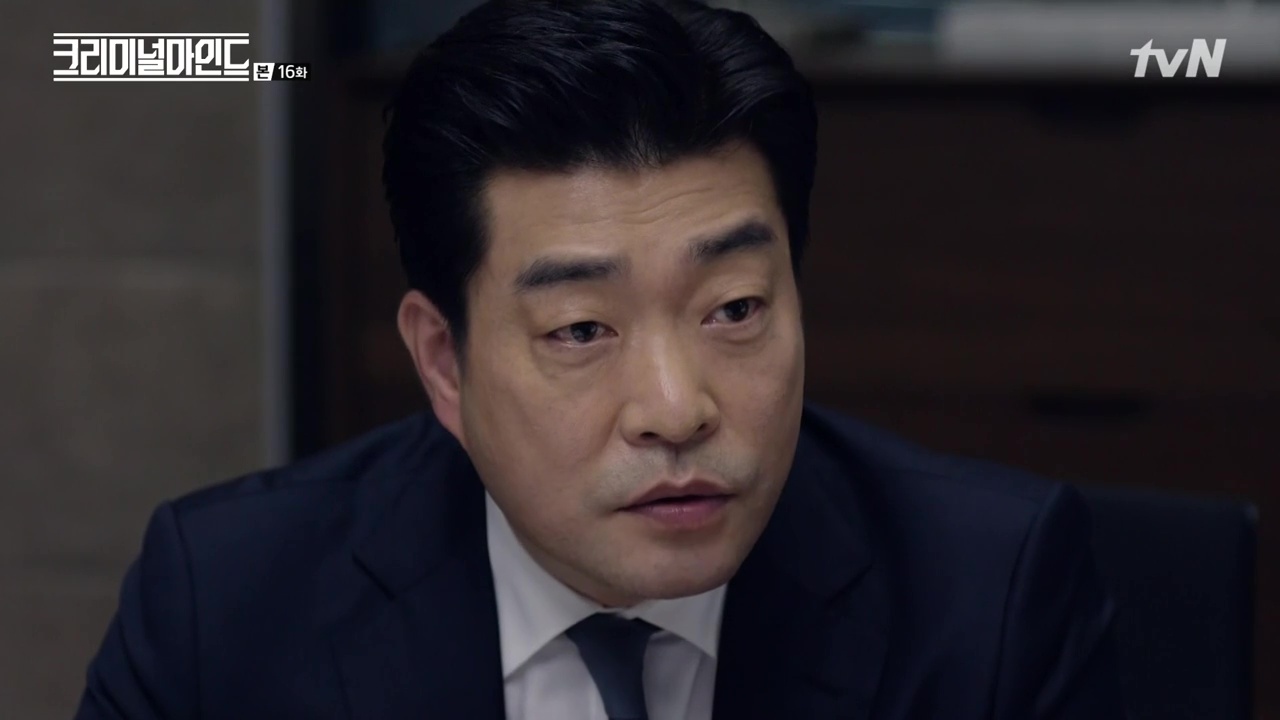
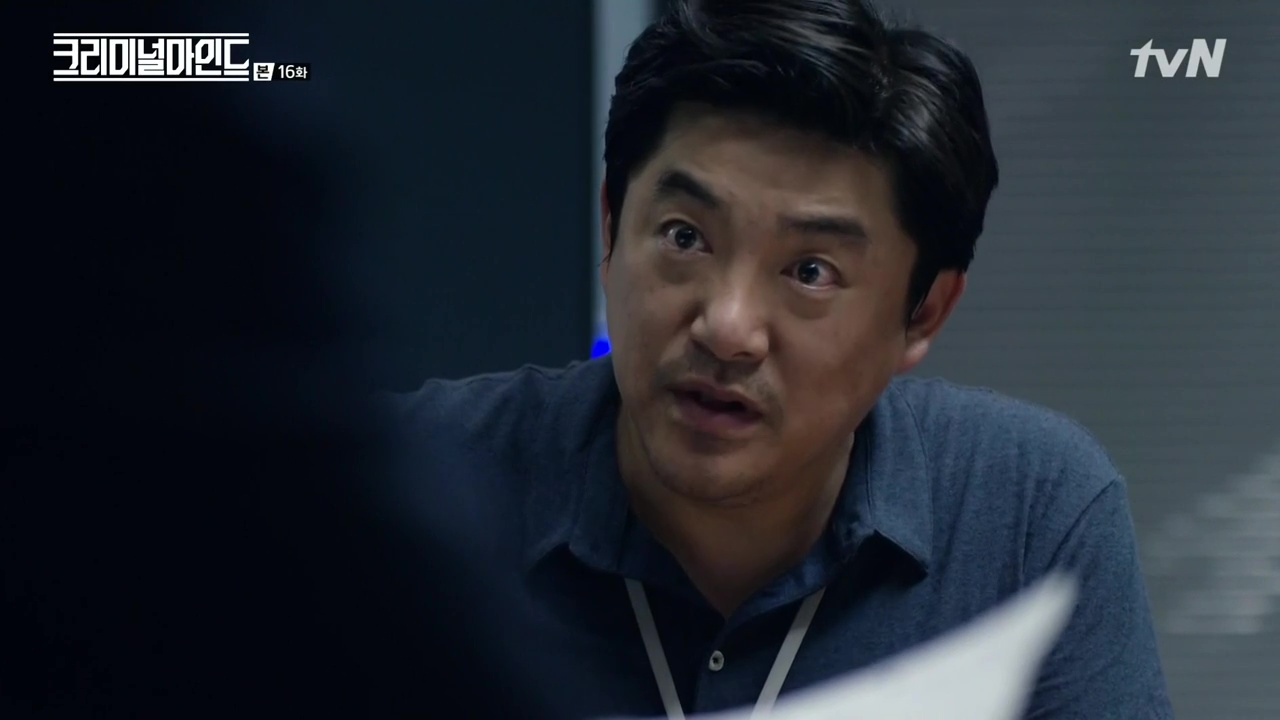
In his office, the murdering court clerk frantically packs his bags to leave. He throws a file into his bag along with a shorthand machine (a stenotype), and rushes out. That explains the finger movements…
Ki-hyung asks Reporter Han why he’d stab someone in the ear with a stone blade, if it were him, and the reporter realizes he’s under suspicion himself. Noting how easily Reporter Han turned a fanatical serial killer into a hero, Ki-hyung says that feeling what the killer feels is not very different from murder itself. Uh, I’d argue it is a little different. Reporter Han rises in outrage, and Ki-hyung asks him to help catch the culprit, if he doesn’t feel that way.
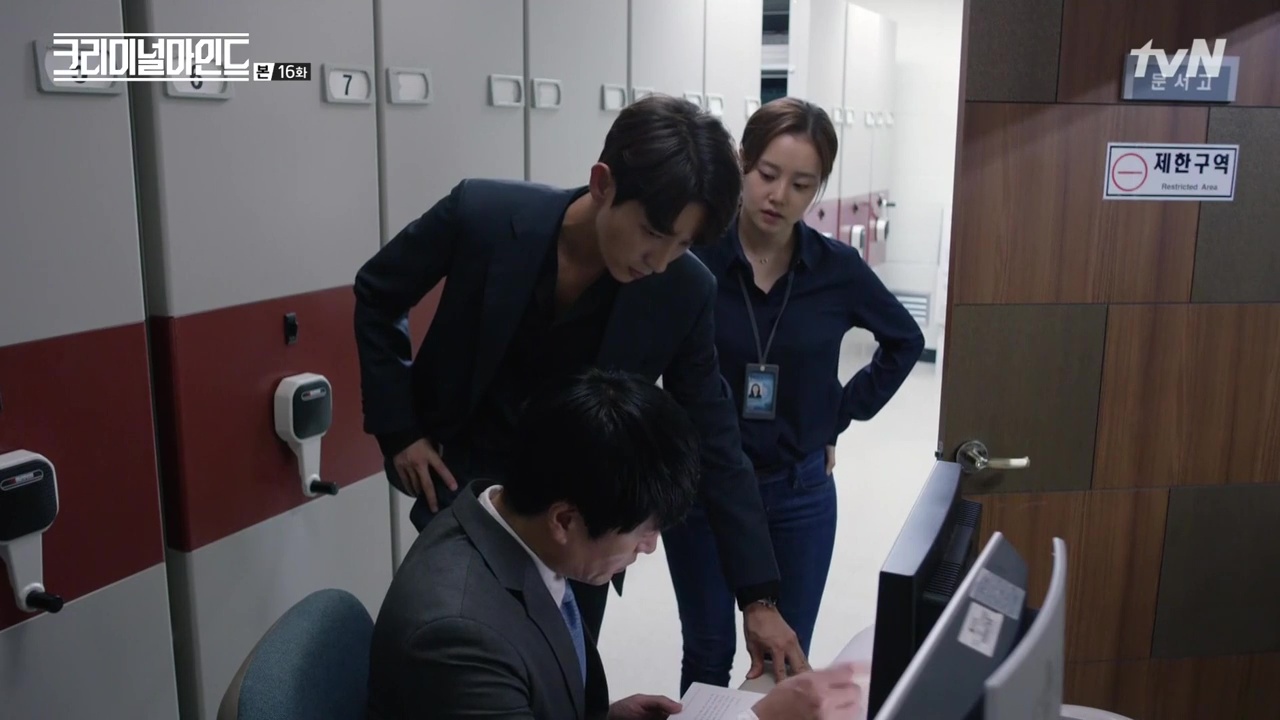
At the courthouse, Sun-woo and Hyun-joon can’t locate the trial documents for the murdered taxi driver, and the archivist tells them that it hasn’t been transcribed yet. He explains there’s a backlog since the court stenographer has been off sick quite a bit.
Ki-hyung peruses the murder victims’ files and thinks back to what the church witness said about the culprit’s finger movements. Putting together his thoughts, he instructs Nana to find out the identity of the stenographer in the victims’ cases. He explains to Min-young that stenographers know all the details about a case; he must have felt like he was personally delivering those acquittals, and that amplified his trauma, Ki-hyung says.
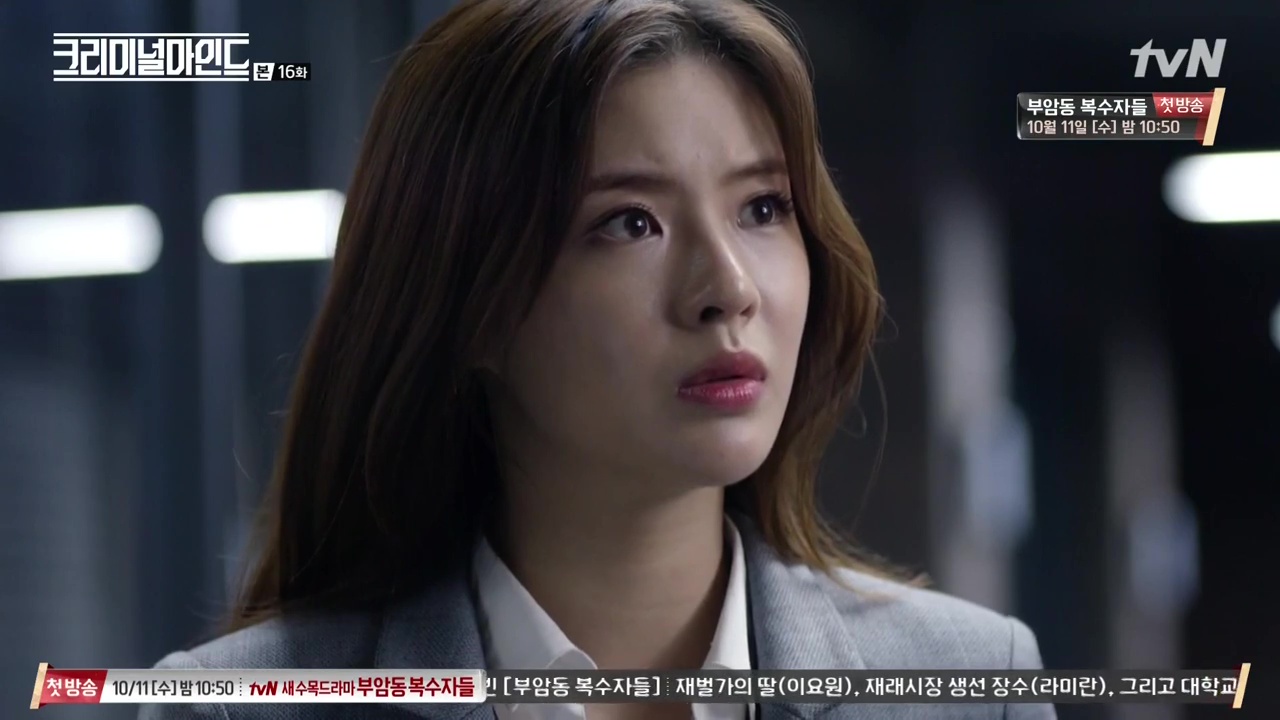
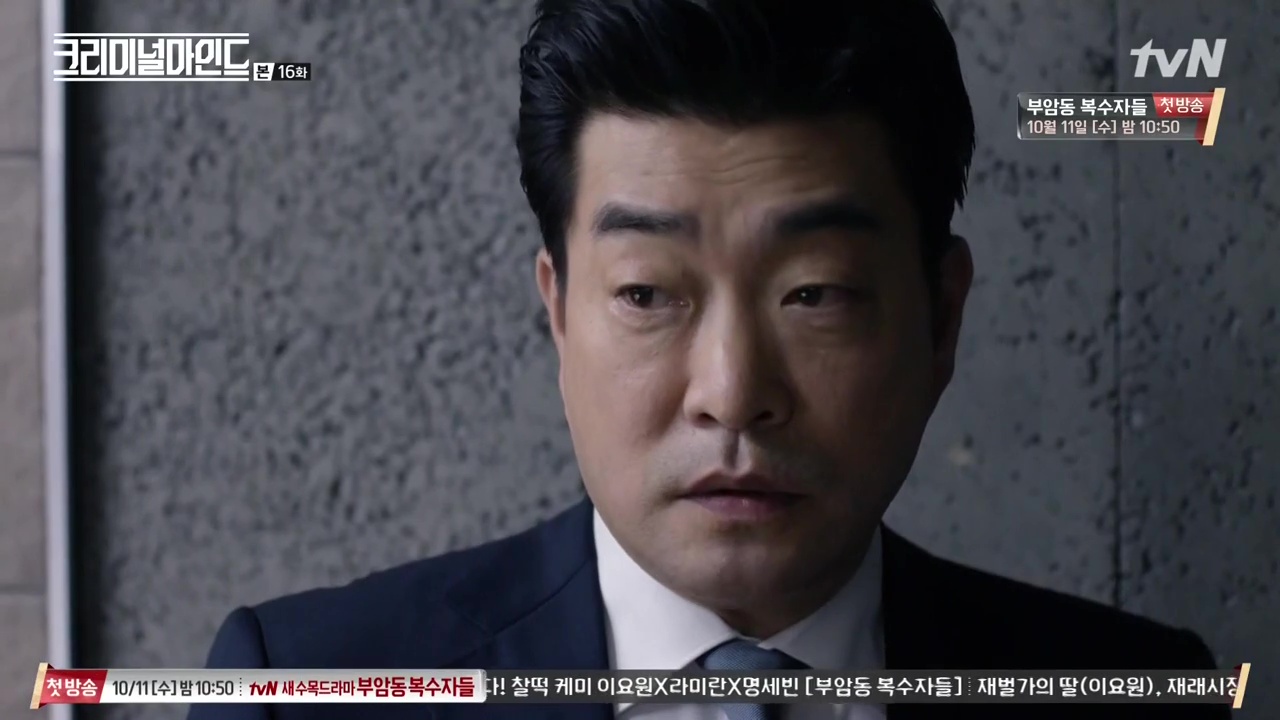
Back at the courthouse archives, Hyun-joon finds out that the stenographer in question had been in the very courtroom they had visited. He recalls the man at the desk, and realizes he must have heard all their suspicions.
Nana informs Ki-hyung that the stenographer is named Jung Do-il, and his entire family was killed in an aggravated burglary when he was 15. At the same time, Hyun-joon and Sun-woo return the courtroom they visited earlier, but find out that the stenographer—Jung Do-il—has taken sick leave for the rest of the day.
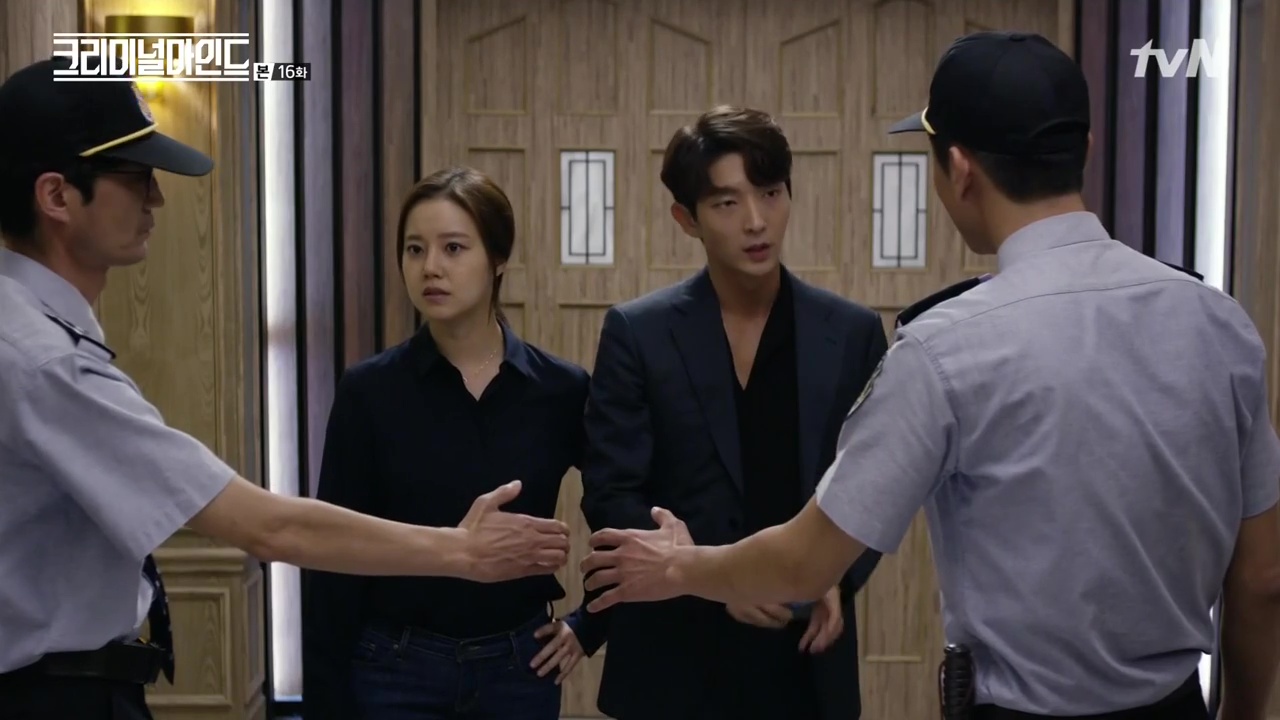
They get Jung’s address and everyone rushes there. Ki-hyung gets Nana to find out what was the last case Jung was transcribing (into longhand).
Elsewhere, Jung Do-il skewers photos of his victims onto a spindle, but the last photo is a man he has yet to kill. Ki-hyung tells his team that Jung will do his utmost to get in one last “judgment” before he’s caught, and they have to discover his intended victim first.
Nobody answers Jung’s door, so they gain access with a master key. They find a blacked-out room filled with boxes, and Hyun-joon thinks that Jung must have suffered from compulsive behaviors and auditory hallucinations, which would explain why he stabbed his victims in the ears.
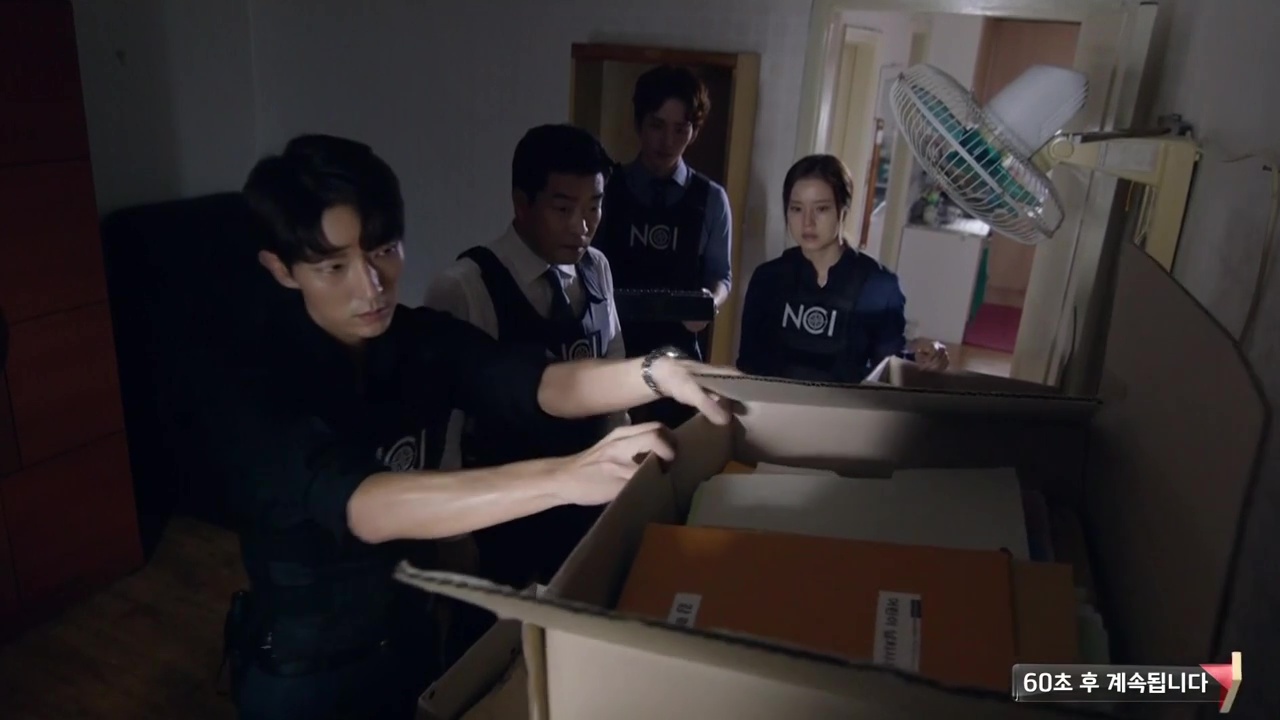
They find just one photo of Jung’s family in a makeshift memorial, and discover that he never even collected the insurance on their death. Nana tells them that Jung’s father was a university lecturer, and the murderer was a student of his.
A flashback takes us back to the scene of that murder. The bodies of Jung’s sister and parents lie in pools of blood. The murderer strangles the dad with a rope while leering at young Jung Do-il, who looks desperately on, a knife protruding from his own belly. Later, the murderer had gotten a reduced sentence due to claiming psychological abuse.
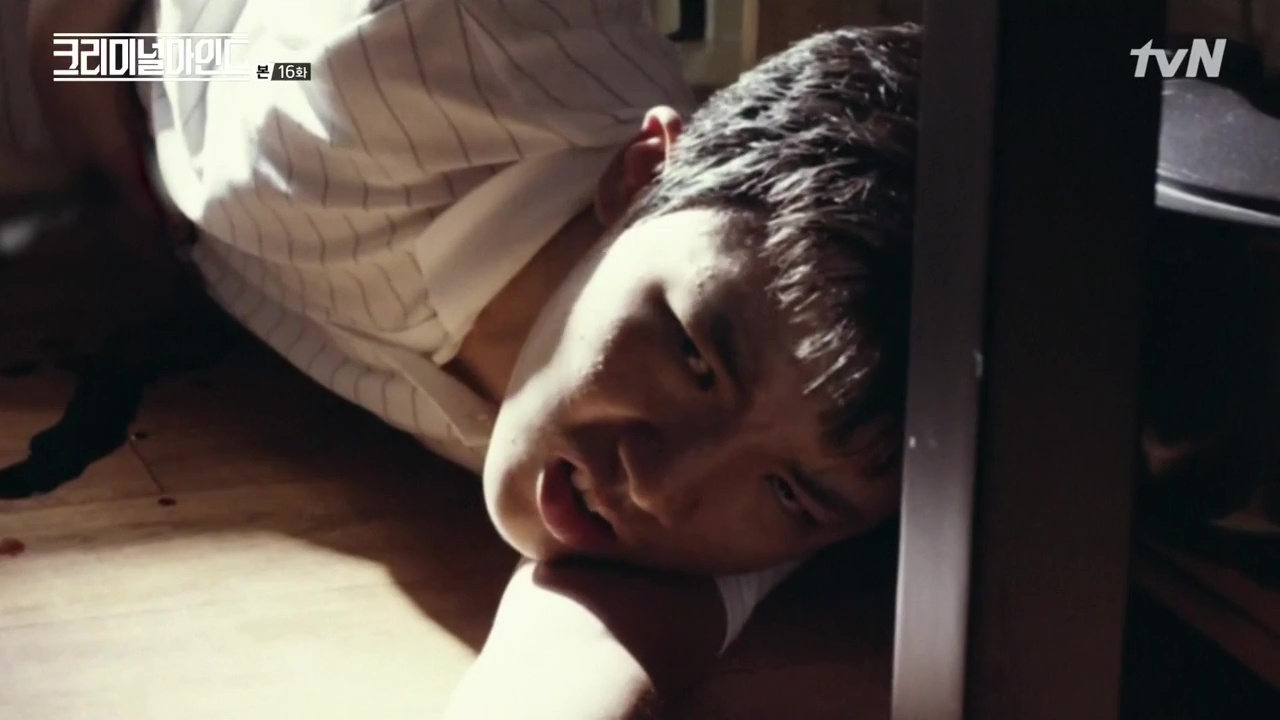
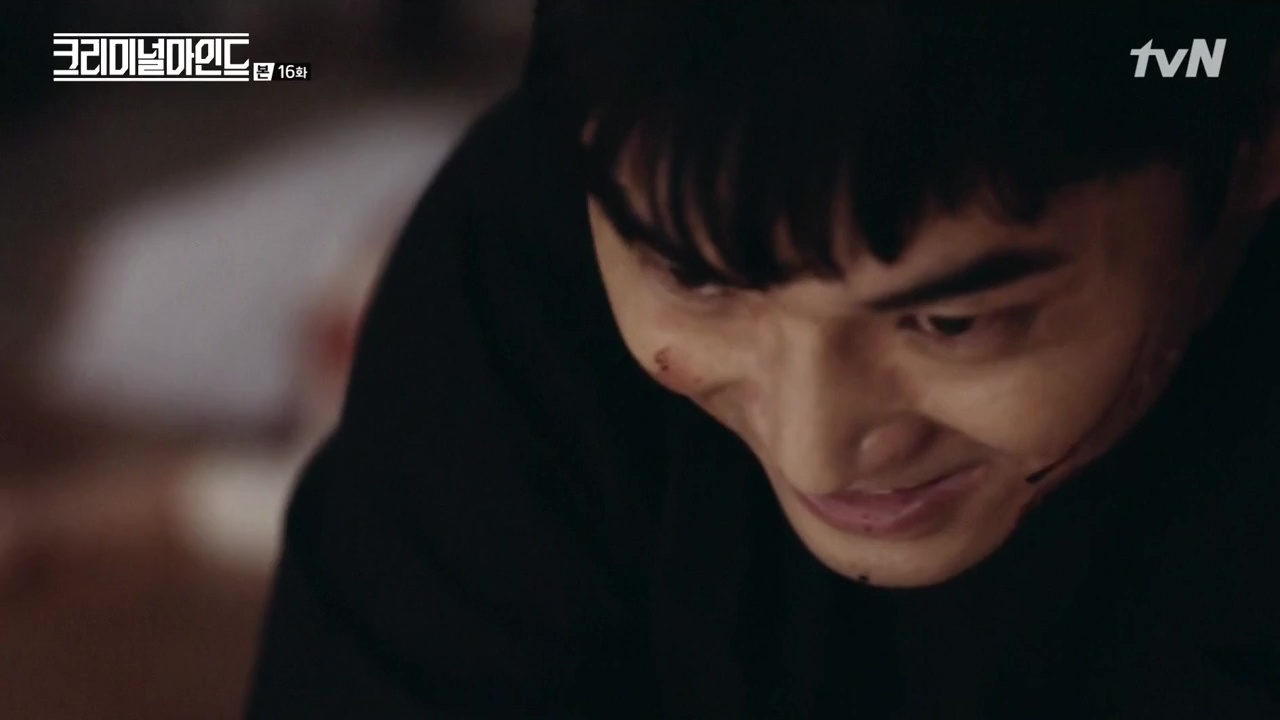
Nana tells Ki-hyung that the murderer found religion and is currently abroad doing missionary work, just as Ki-hyung finds a broken cross among Jung’s books. In the other room, Hyun-joon discovers a box full of stone knives, while Han finds an old stenotype. He explains that stenographers have their own private codes so no one can decipher their notes.
They start going through boxes of old records that Hyun-joon finds, certain that information on the next intended victim is somewhere among them. Sun-woo guesses that Jung’s compulsive personality would make him work through victims chronologically, so it wouldn’t be a recent case.
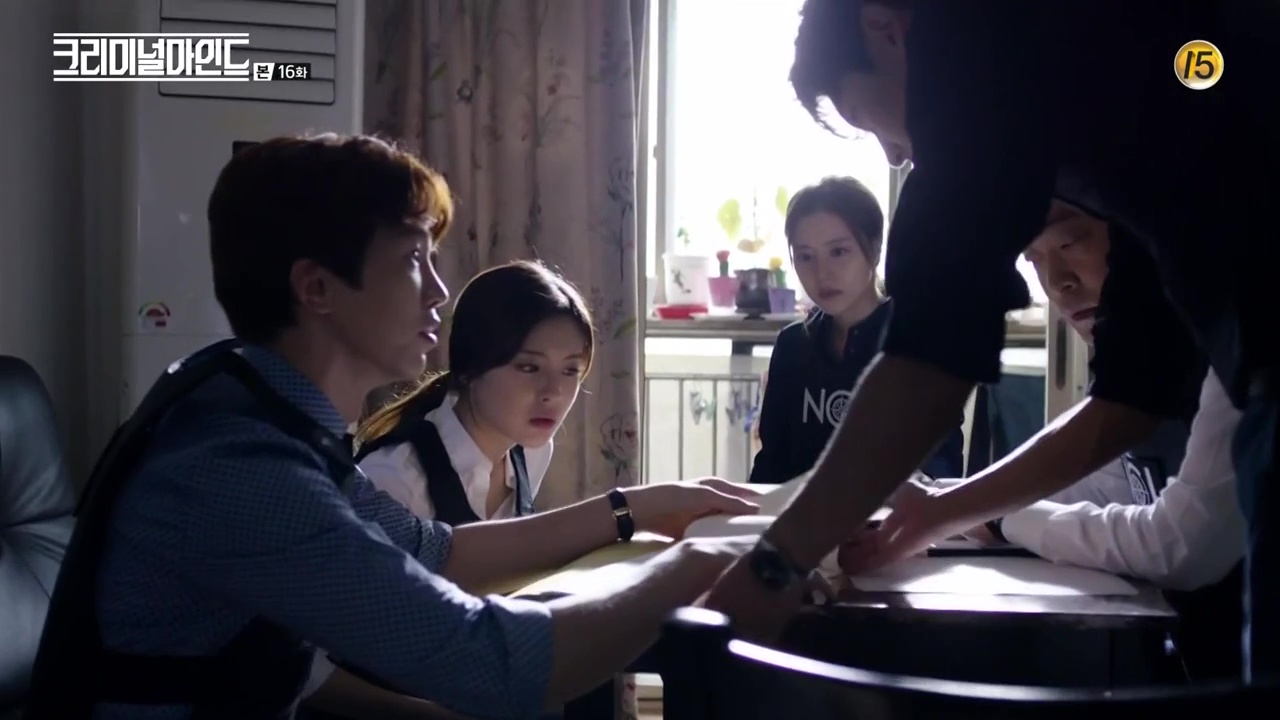
Han finds traces of something having been torn off certain pages of the undeciphered files, and realizes that the dates marked on them correspond to the dates Jung’s victims received their verdicts.
Among those dates, Nana finds a case that is alarmingly similar to what happened to Jung’s family, but in this case, the defendant murdered his own parents. He also received a not-guilty verdict after pleading mental illness due to prolonged abuse at their hands.
Just then, an officer rushes in with a new finding: the spindle of photos Jung had earlier. The photo at the top is the very case they were just hearing about. Ki-hyung thinks that Jung would have judged that this guy—whose name is Hwang In-chul—needed a new verdict.
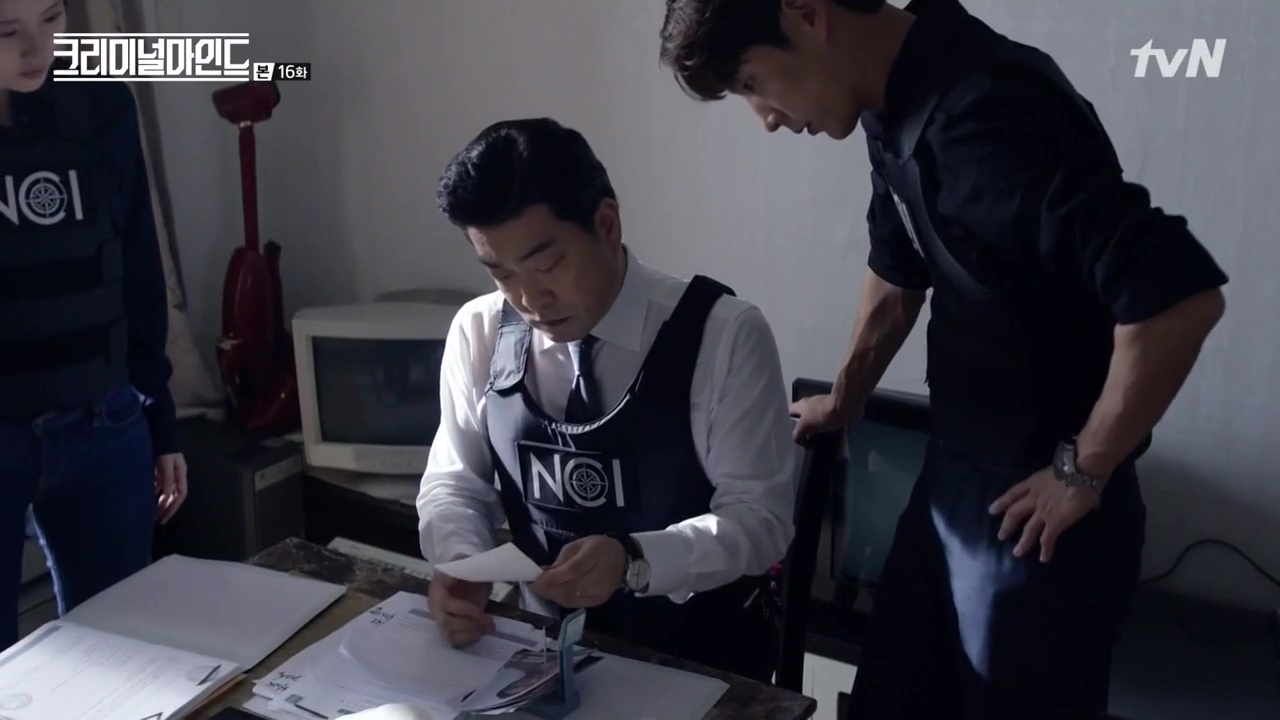
Everyone gets back on the road, and they’re unable to contact either Hwang or his wife. Back in his murder-hoodie, Jung Do-il has begun stalking Hwang. But who does he wave to when he crosses the road? That’s odd.
The NCI finally gets through to Hwang’s wife (who’s been on the phone with hubby all this time) at home, and she immediately calls her husband again. Spying him from her balcony, she’s unable to warn him in time as Jung attacks him from behind. Screaming, the wife runs outside.
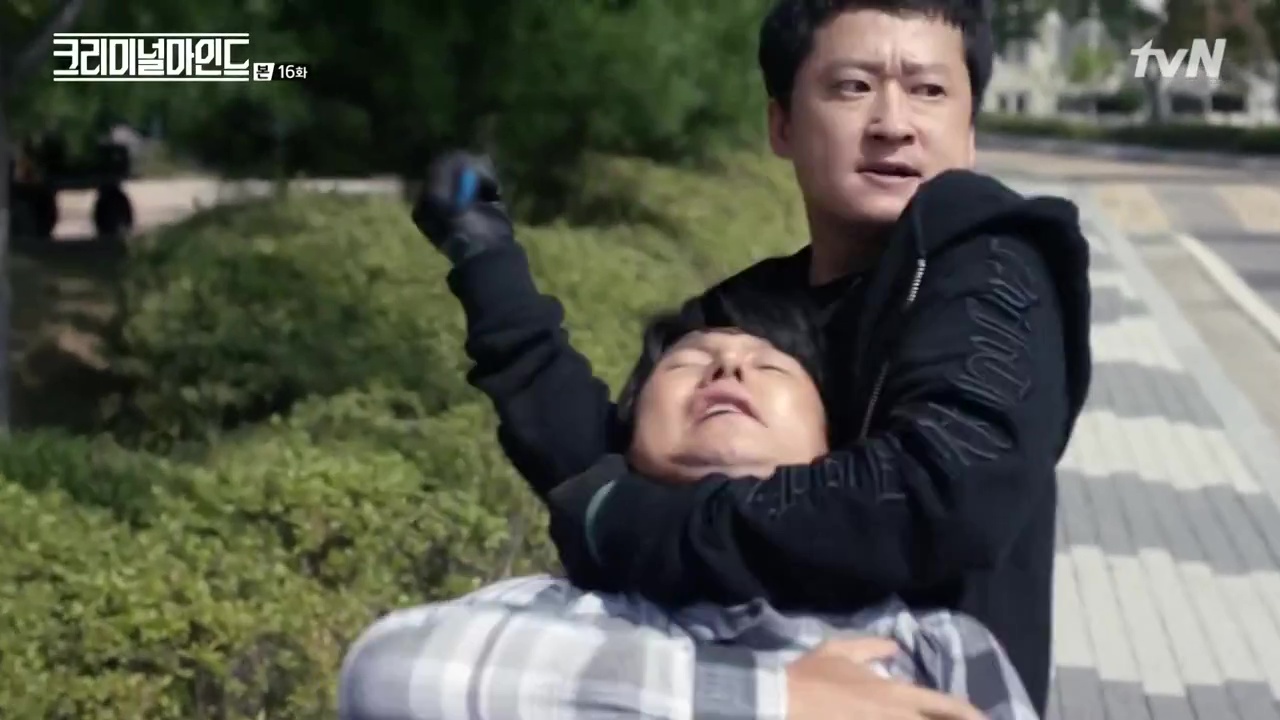
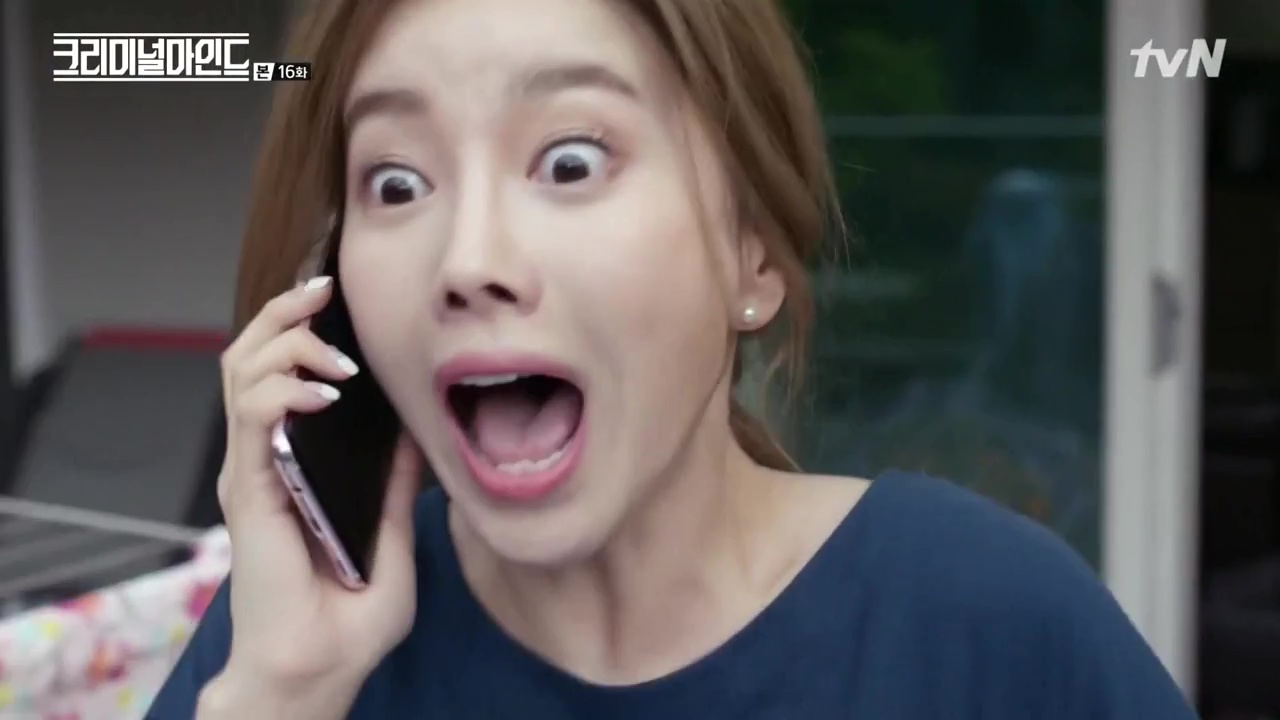
Jung drags his victim to a children’s playground. He yells at the gathering crowd not to approach, and the onlookers hold Hwang’s sobbing wife back. Jung accuses his victim of lying about his parents, when in fact he had been taking drugs while his mom tried to cover for him. One of the onlookers, a young man in a baseball cap, stares unwaveringly at the men. Another killer?
Sirens blaring, the police and NCI rush in. Hyun-joon and Ki-hyung approach first, and Jung warns them off, saying that Hwang deserves to die. “I think so, too,” Ki-hyung agrees, “However, whether that person should live or die isn’t up to us.” He promises to reinvestigate Hwang’s case fully, but Jung yells back that it is up to him, and vows to kill Hwang and then himself.
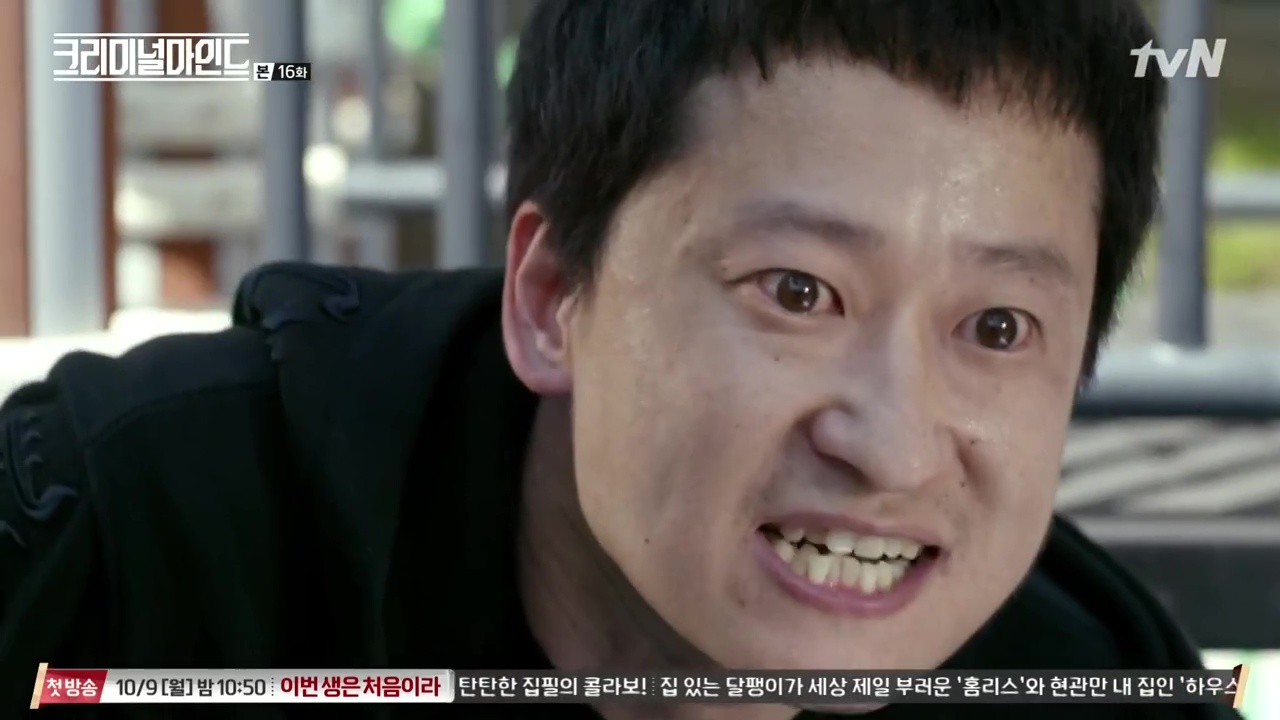
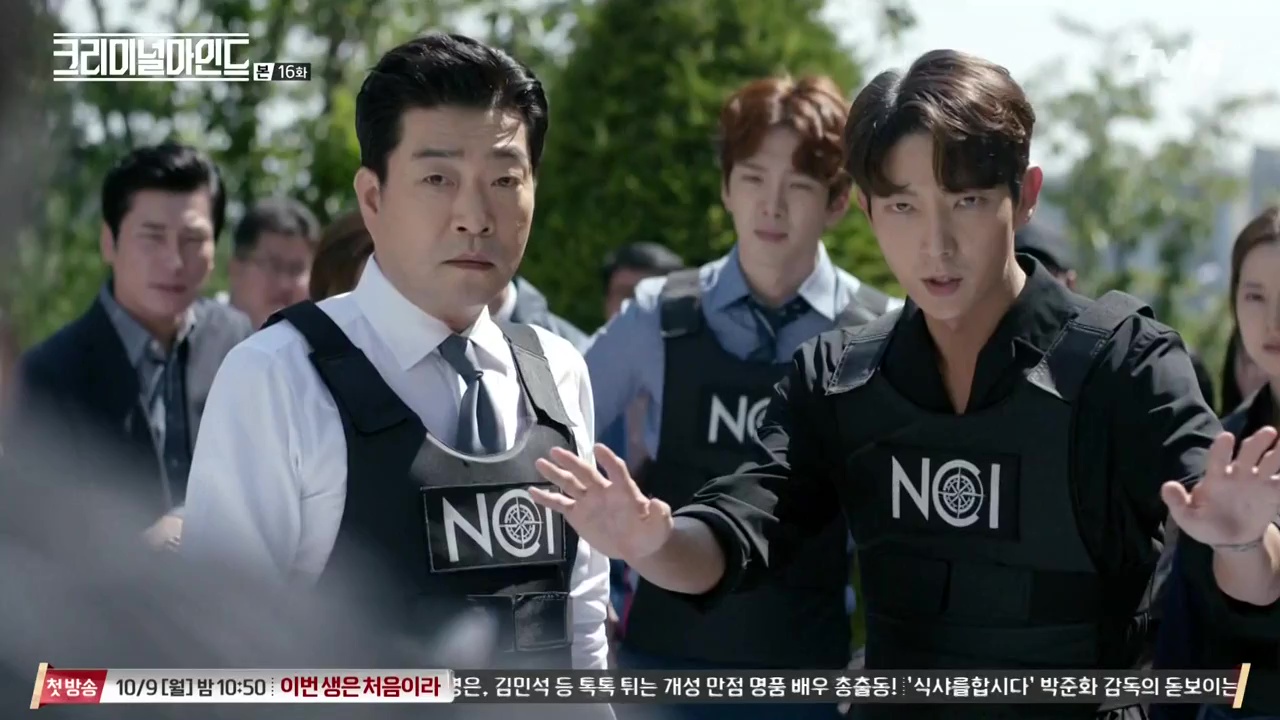
Hyun-joon recalls what Nana told him about Jung’s repeated attempts to meet his family’s murderer in prison, who only consented to meeting him once. He tells Jung that if he kills himself, he’ll never find out why his family was killed, but Jung doesn’t care about that.
Hwang begs Jung to forgive him, and that triggers a memory for Jung. During the one meeting with his family’s murderer, the man had told him that he’d already repented and received forgiveness from God. He’d asked Jung not to visit again, because only God had the right to punish him. Wow. How about asking forgiveness from the dude you actually wronged? Jung was understandably appalled.
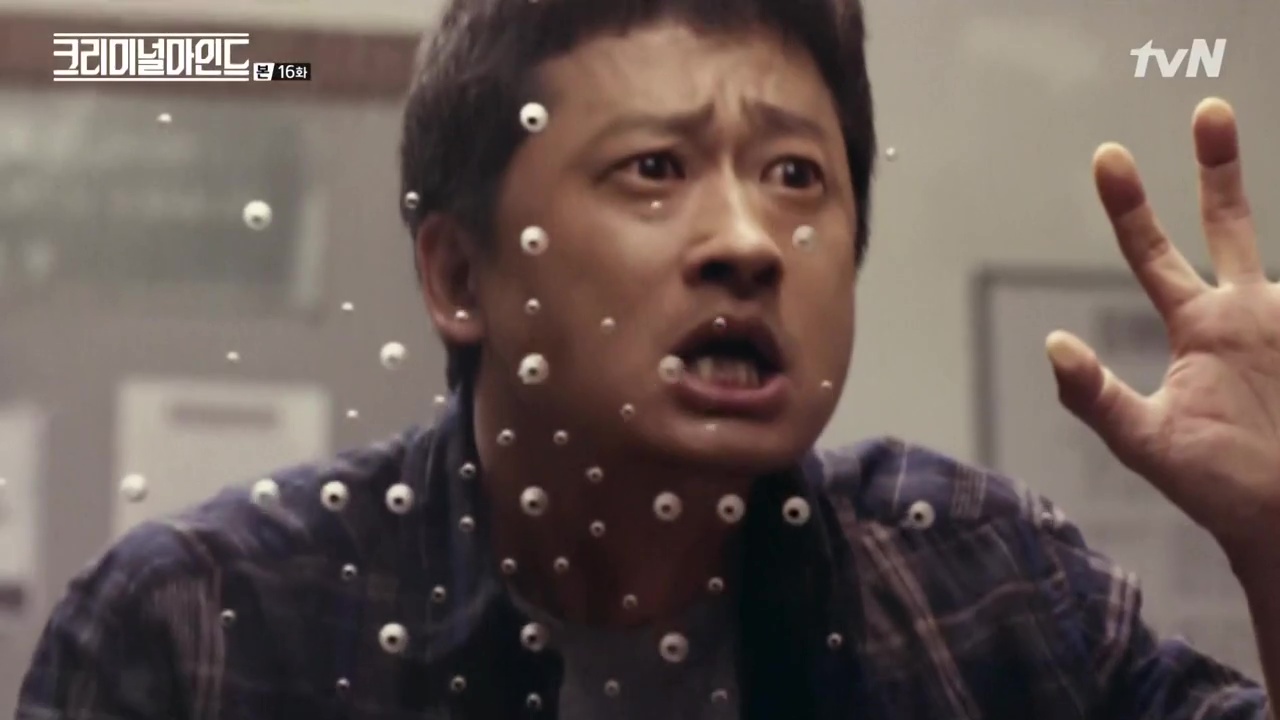
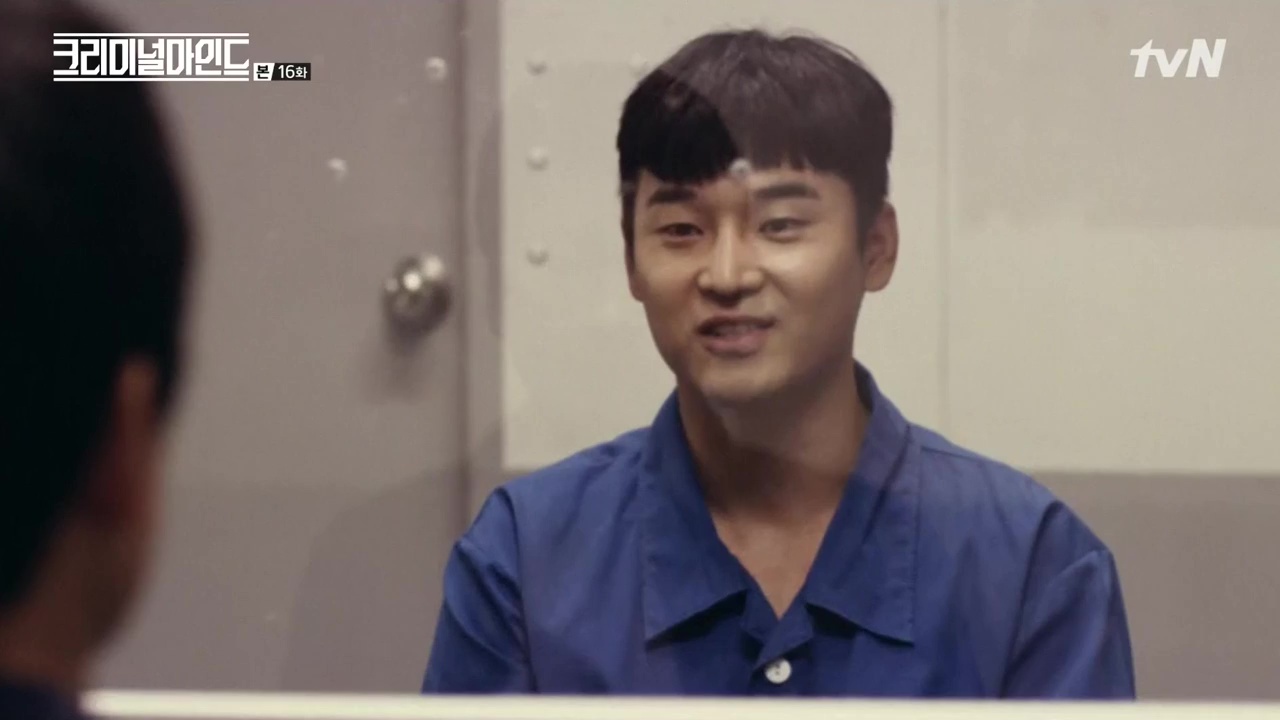
Later, when the murderer was released, Jung went to the prison gates with a knife, but ended up looking on instead as the man’s parents hugged and welcomed him. Yep, it’s got to be tough watching the guy who murdered your parents be treated so lovingly by his own.
After that, Jung’s compulsive condition and auditory hallucinations got worse, and all the while, he continued recording cases of people getting acquitted for their crimes.
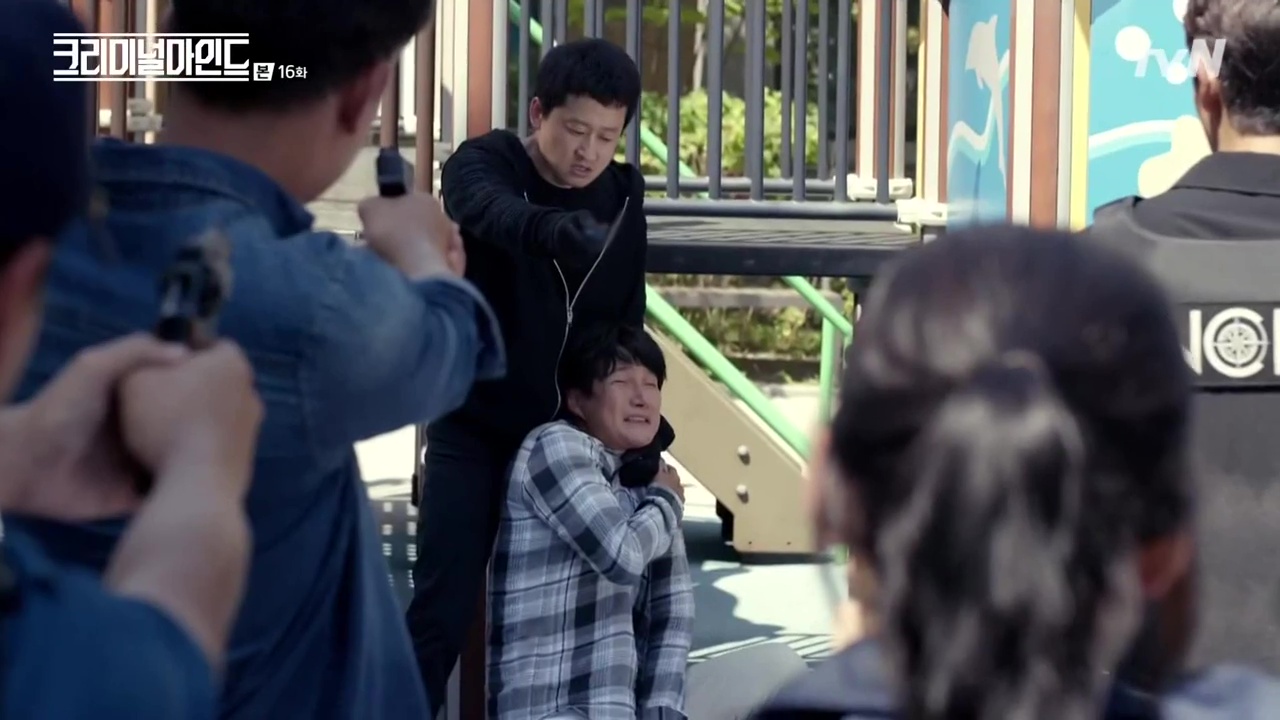
He screams at the present assembly that only his verdicts are true. Hwang pleads with Jung to spare him—his wife is pregnant with their child. Finally having enough of it all, Jung goes in for the kill… but one of the cops shoots him straight in the heart. Did you really need to fire a kill-shot?
Ki-hyung yells for an ambulance, while off to the side, Hwang’s lips curve up in a sharp smile. Looking towards him, Jung murmurs that he couldn’t believe that after doing such a thing, Hwang was able to live like nothing happened.
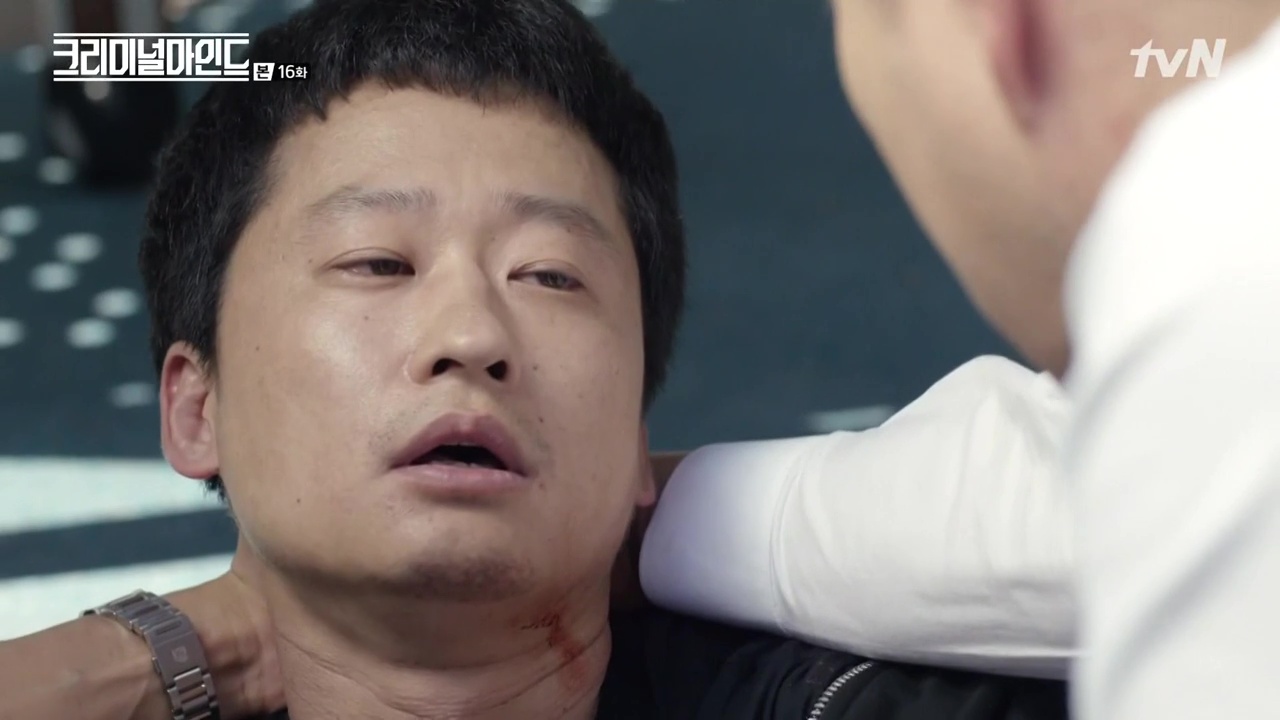
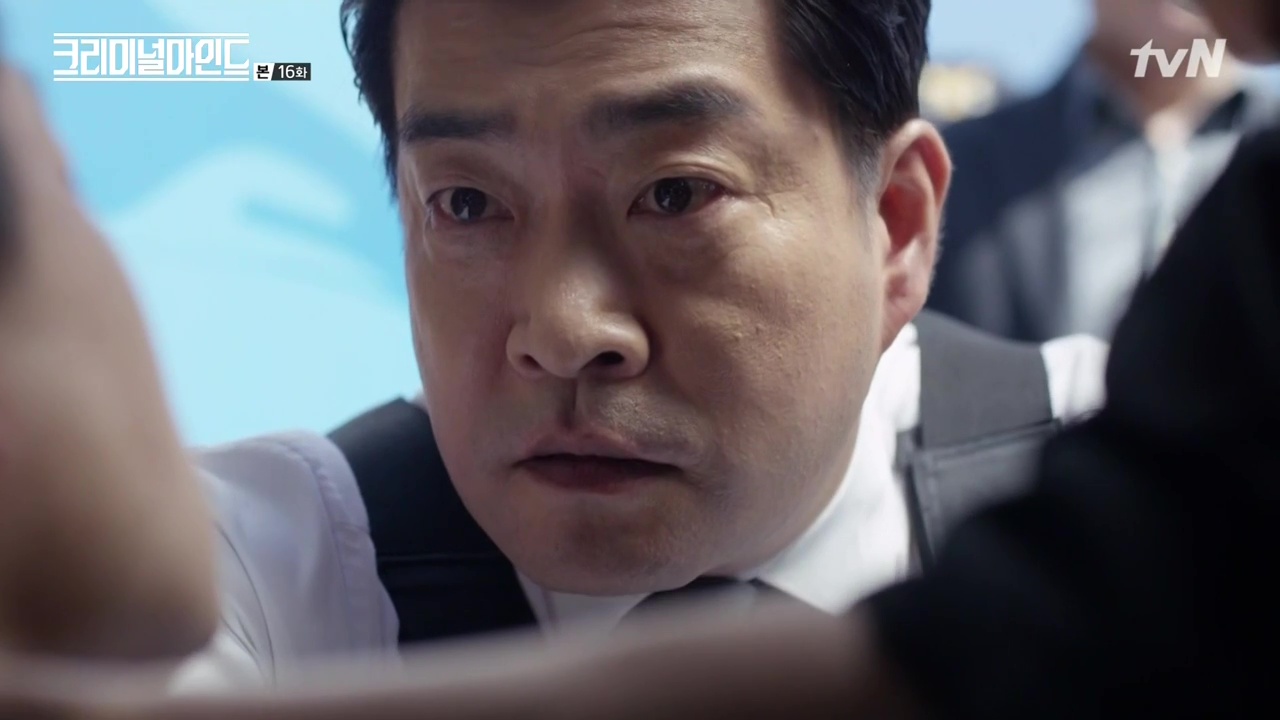
And with that, he dies, and Hwang turns away with a smug smile. But it doesn’t last long, as that strange onlooker from earlier rushes him and stabs him violently in the gut. “This is justice’s judgment,” he whispers to him. The young man is dragged away, but it looks like it’s too late for Hwang.
Hyun-joon’s voiceover closes the case with a quote from Gandhi: “I object to violence because when it appears to do good, the good is only temporary; the evil it does is permanent.”
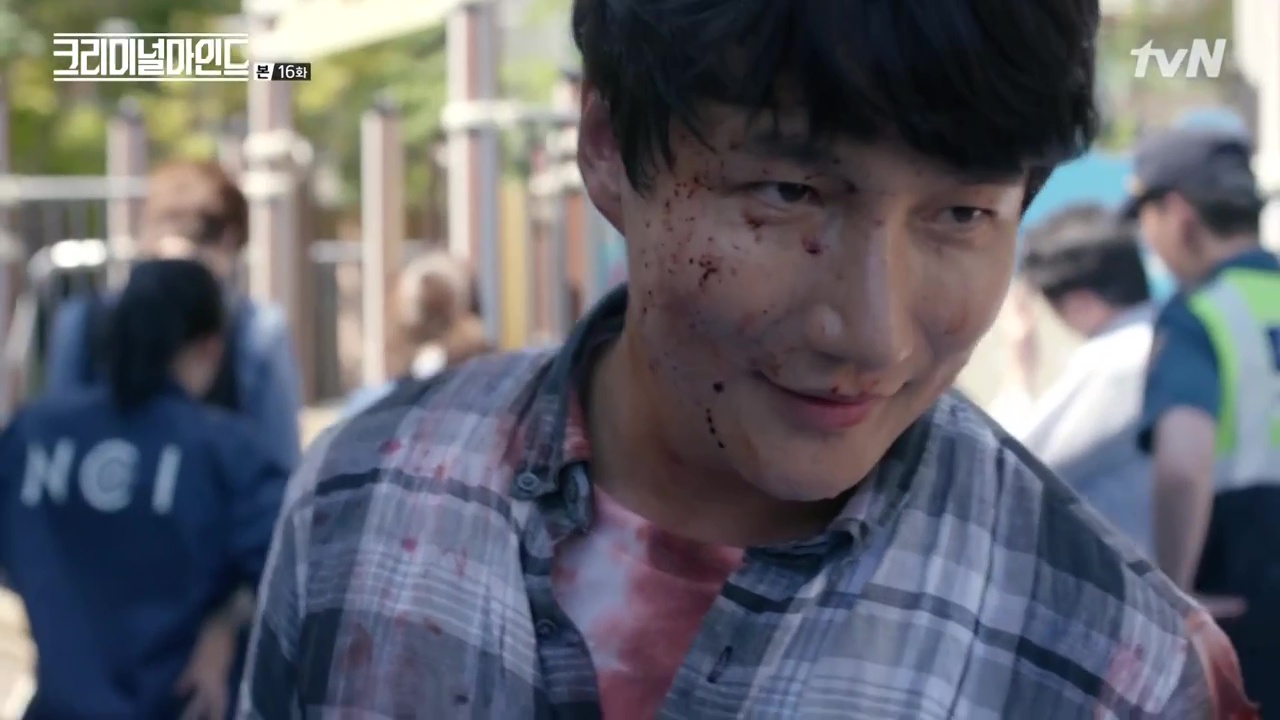
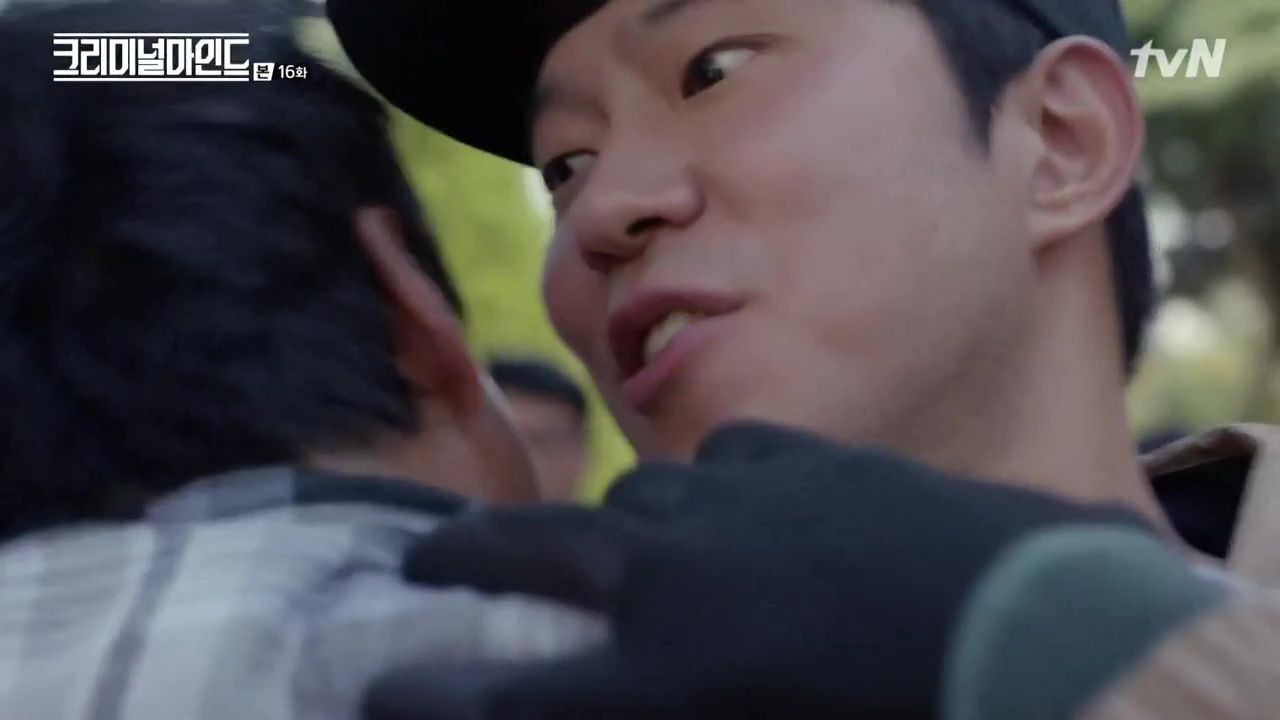
A round of street interviews follows, and Ki-hyung watches the news report with unease. Some voice support for vigilante action, expressing distrust in the law, but an older man attests that murder is wrong, nevertheless. Oh look, somebody sane. One interviewee asks if the police didn’t intend to shoot Jung dead.
Hyun-joon pops by and reports that Hwang’s murderer was just a copycat. Ki-hyung tells him that he’s uneasy about how the media seems to be reporting Jung’s crimes favorably, and Hyun-joon admits that he often wishes he could use his fist rather than the law, too.
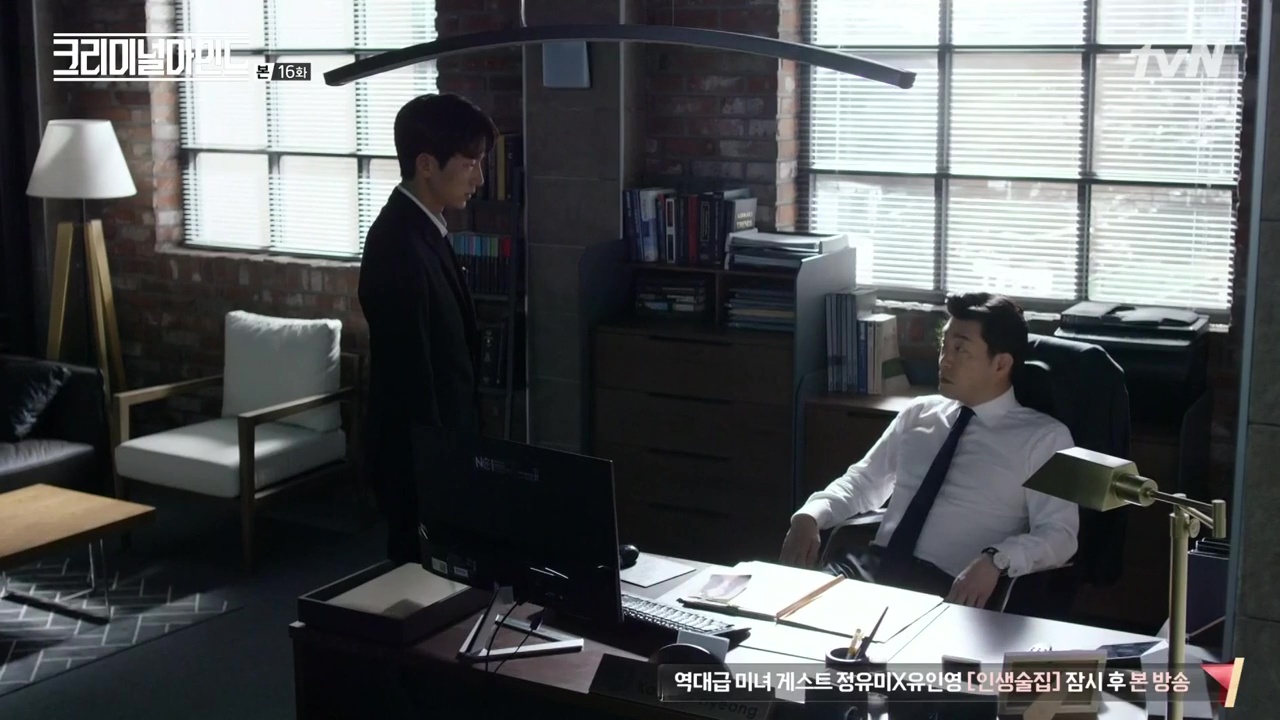
“The problem is, he went over a line he shouldn’t have crossed,” Ki-hyung says. The day must be wearing on him more than we think, because he asks Hyun-joon to have a drink with him. Hyun-joon is surprised by the request, but agrees.
Min-young and Nana return from a trip with Han-byul and Min-young’s niece, Ha-eun. Traversing the Seoul Station underpass, Ha-eun asks about the homeless people there, but they’re soon forgotten when they go to eat.
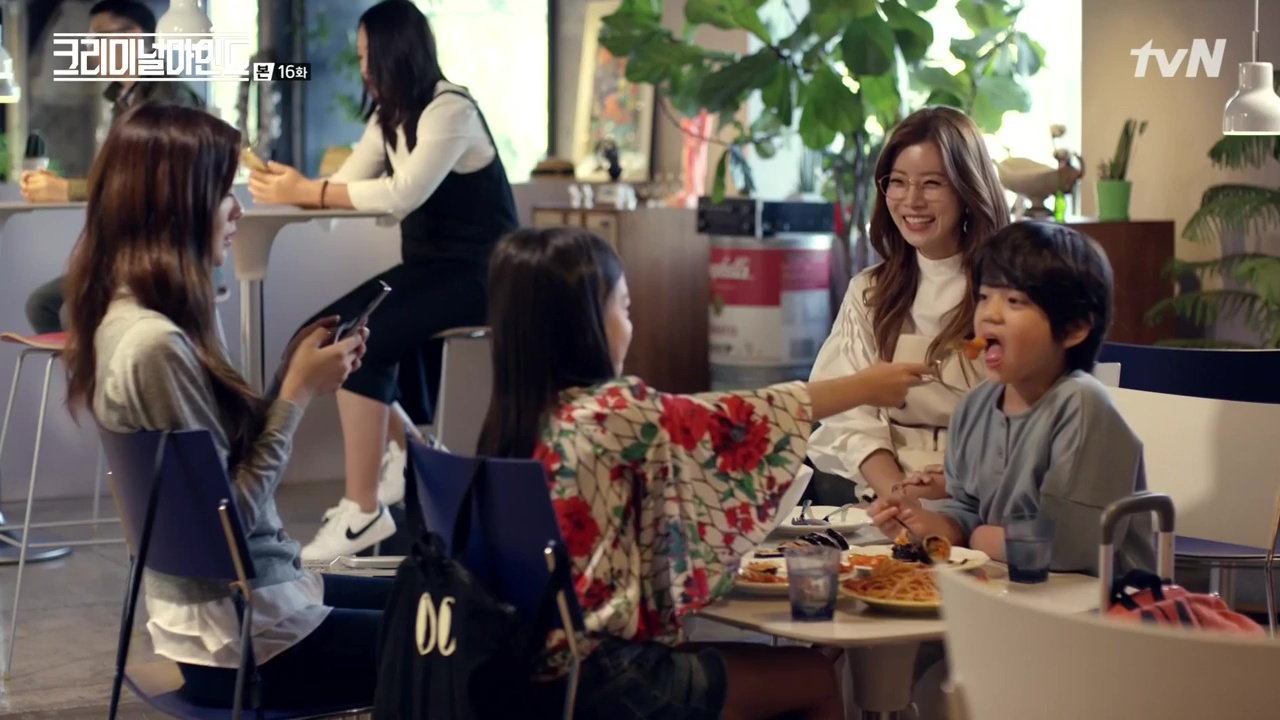
Over their meal, Nana notices Min-young fixated on her phone. Min-young admits that she’s worried about the apartment rental deposit and Nana offers to help her, explaining that all she’s got is money and her looks, lol, and no one to spend it on. Min-young tries to turn her down, but Nana says that life is about helping each other out and occasionally being uncomfortable, too. Aw.
Back at the Seoul Station underpass, a sharply dressed man passes through. We don’t see his face, but one of the homeless men seems to recognize him, though he quickly backs off. Hm, is this guy a former Seoul Station denizen?
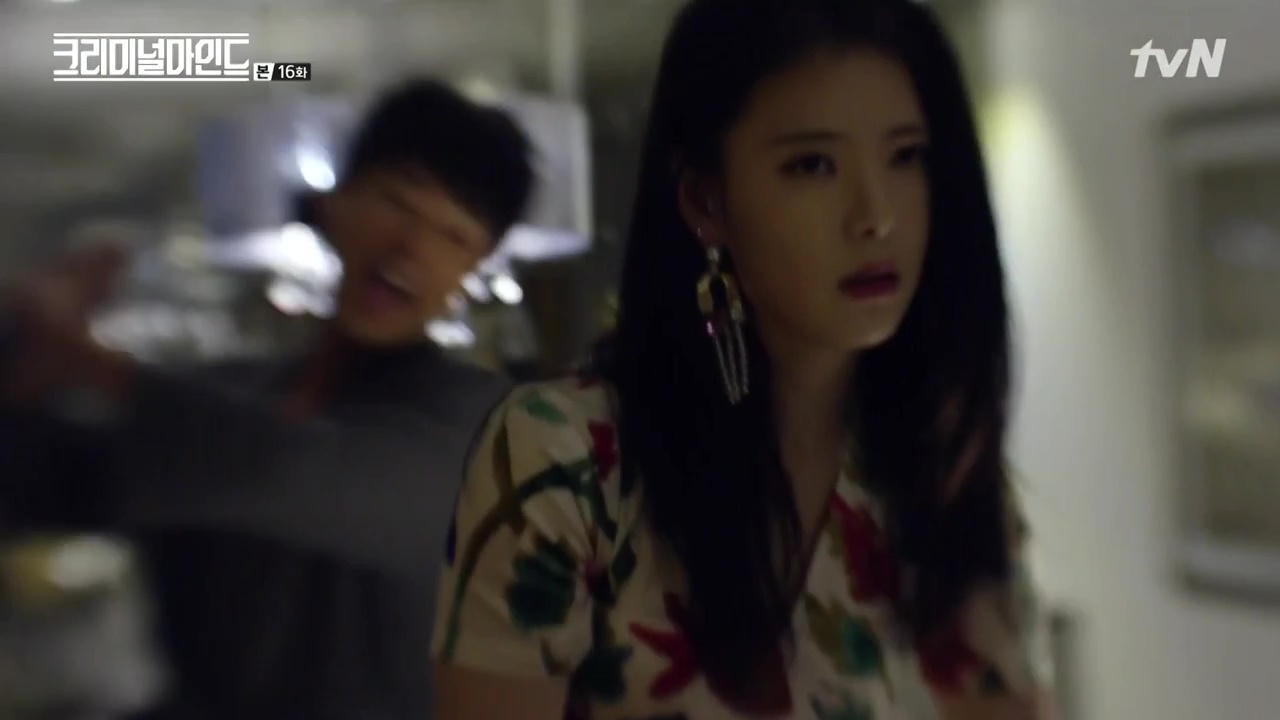
Later, that same man chills in a luxury apartment with a date. But over dinner, the woman grows woozy and her vision blurs. It’s clear that her drink was spiked, and the man laughs wildly. Grabbing a golf club, he proceeds to bludgeon her to death.
The next day, a group tours the apartment, which turns out to be a model home. Curiouser and curiouser. They note how lived-in it feels, and are surprised by the real food on the table. But a woman investigating the kitchen cabinets lets out a shriek of horror when one of them reveals a bloody body—the woman from the night before.
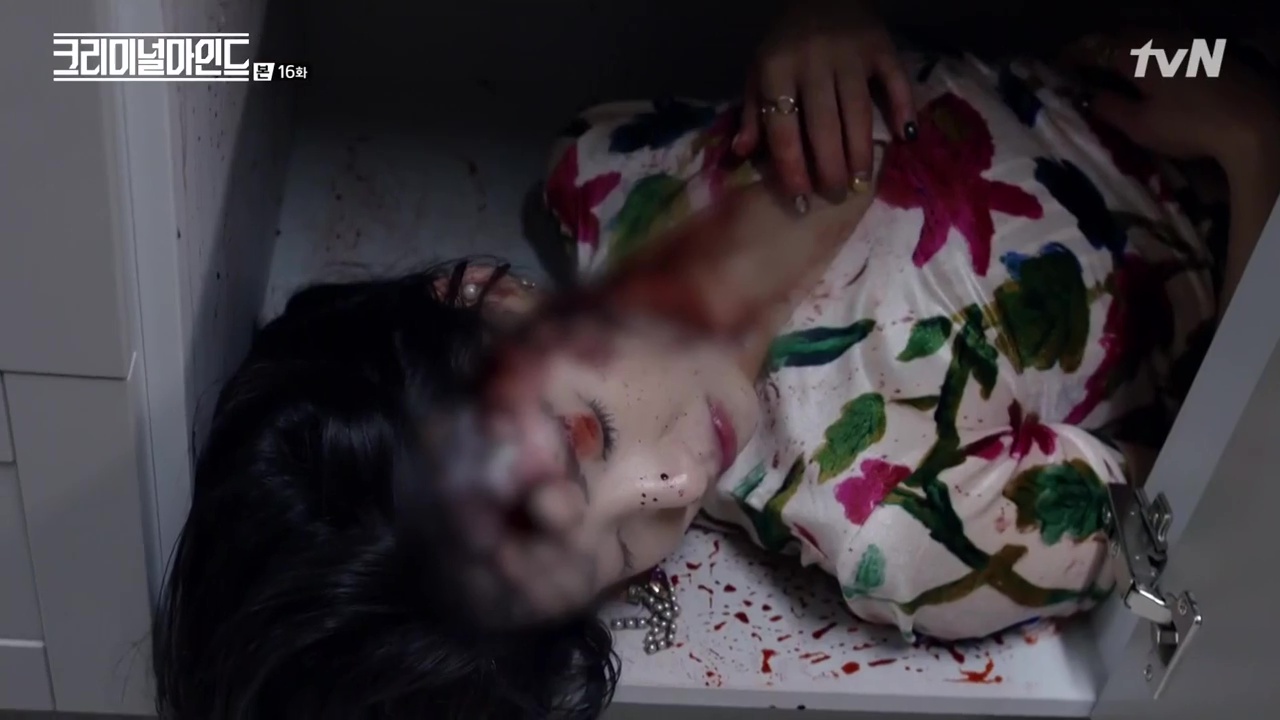
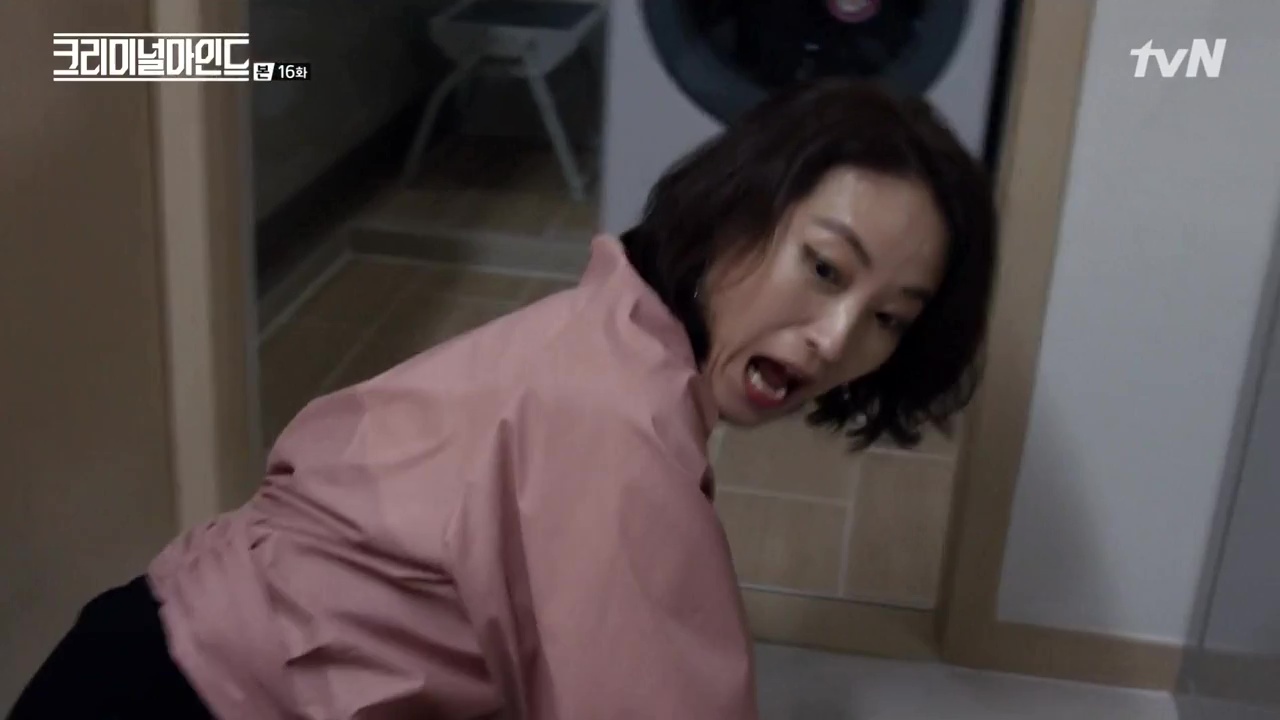
The case makes its way to the NCI. They match it up to another model-home murder bearing the same hallmarks. There’s no evidence of sexual assault, and Sun-woo says that the killer used the apartment like it was his own home, eating, watching TV, and even enjoying a bubble bath (all while the woman’s body lay there, a quick cut shows).
Ki-hyung dispatches Sun-woo and Hyun-joon to the scene, where they examine the report. They confirm that the victim must have eaten there with the killer, since undigested food was found in her stomach, and proceed to the cabinet where her body was found.
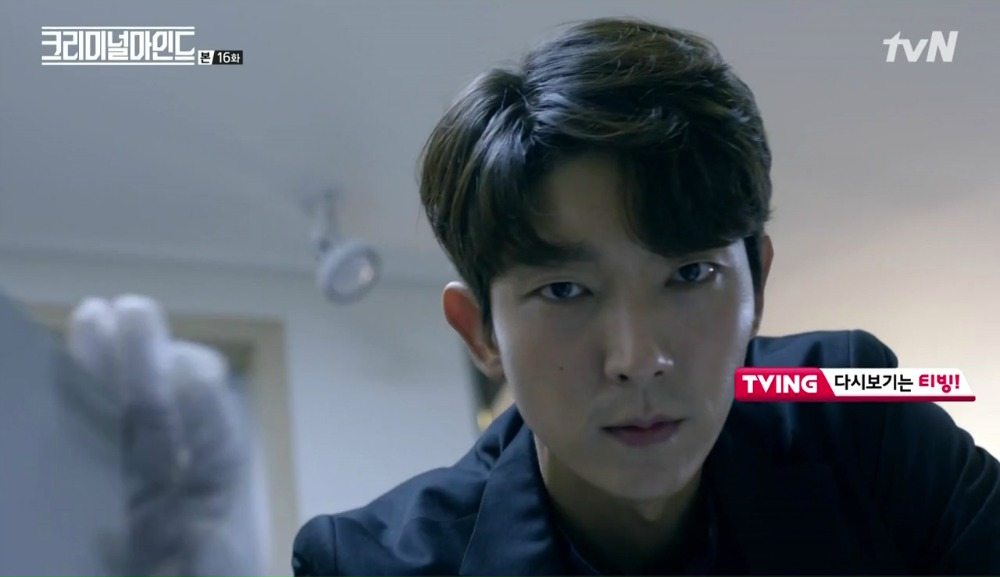
COMMENTS
That’s a really odd place to end the episode, but this show’s strange editing decisions shouldn’t surprise me anymore. Criminal Minds has quite a fixed formula at this point, from which it rarely deviates: 45 minutes on the main case (with a quote to tie it up), a five-minute team interlude of some kind, and then ten minutes introducing the new case. It’s hard, as someone really determined to look on the bright side, to hold my feelings about this show in check sometimes. The thing that frustrates me most is that it’s not a bad show as such, but it unfortunately uses all its elements really poorly. But we are probably flogging a dead horse at this point, so let’s move on!
I think the most interesting moment to me this episode came at the end of the main case. There’s a spark of sympathy from everyone, I think, for the vigilante who has legitimate grievances and a truly tragic story, but it came through most strongly with Ki-hyung. Considering what happened to his wife, there’s no one who understands more how a victim feels. But as strongly as he sympathizes, his opposition is even stronger, because he understands that taking the law into your own hands is never the answer, even if justice (of a kind) is served.
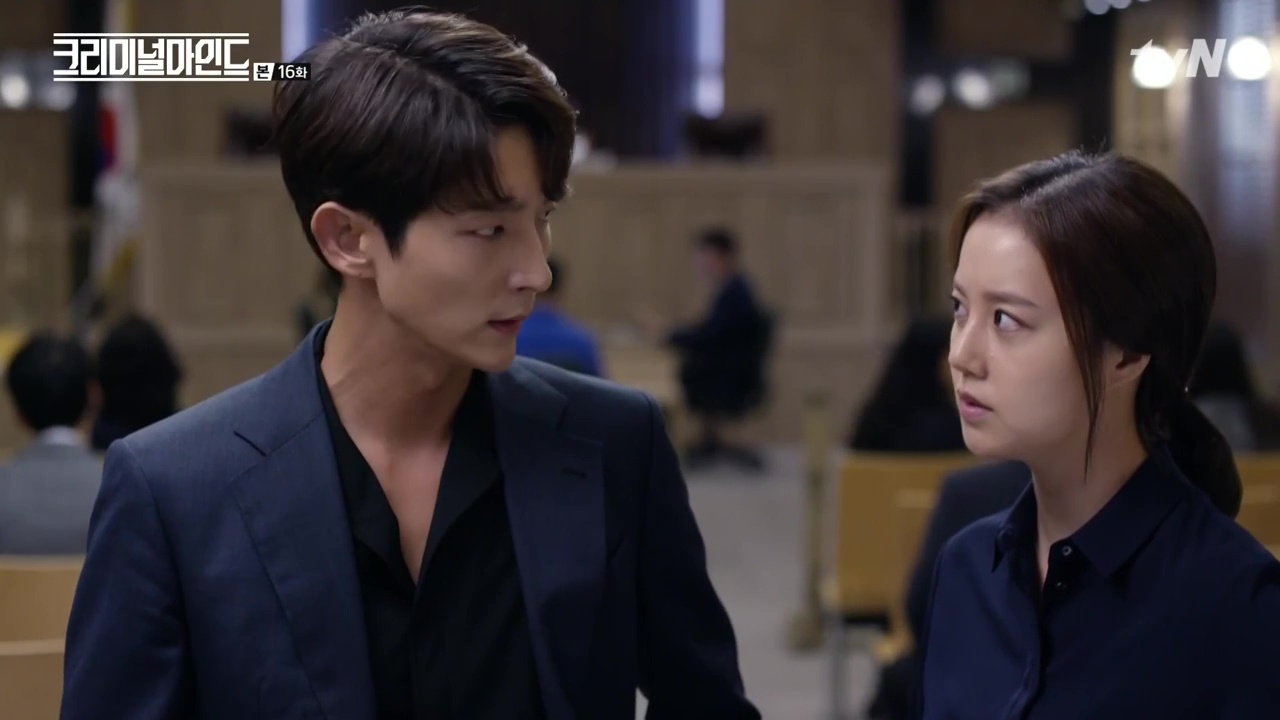
It illustrates how justice and law aren’t always the same thing, and I think part of Ki-hyung’s unease with public opinion is that he understood where it came from: The law had been tested and found wanting. But his core belief is that the law, even when it’s flawed, must be the only vehicle for conveying justice, because justice outside the law is of a dangerous kind and cannot be its own purveyor. It’s a philosophical inquiry that underlies the entire case, and at the end, when he agrees with Jung that his victim should die, I feel that he meant it. Not in the same sense as Jung, but in a sense.
I found it telling, too, that as Jung lay dying, both Ki-hyung and Hyun-joon were genuinely distressed—not just at his death, but also at the life which brought him to this death. It’s difficult to know how to feel about it yourself as a viewer, and in that respect, this episode really succeeds in making you feel simultaneous, complex and mixed emotions. We can all agree pretty easily that murder is wrong, but how do we give comfort and reason to someone who was failed by the justice system? The other half of that dilemma lies in the question of forgiveness. I’m sure I wasn’t the only one incensed by the gall of the murderer who told Jung he’d already asked for and received forgiveness. To go religious for a second, I can’t believe in a god that absolves you of wrongdoing when you don’t make an effort to make amends with the living. The guy whose family you butchered is right there! Make amends with the living, dude.
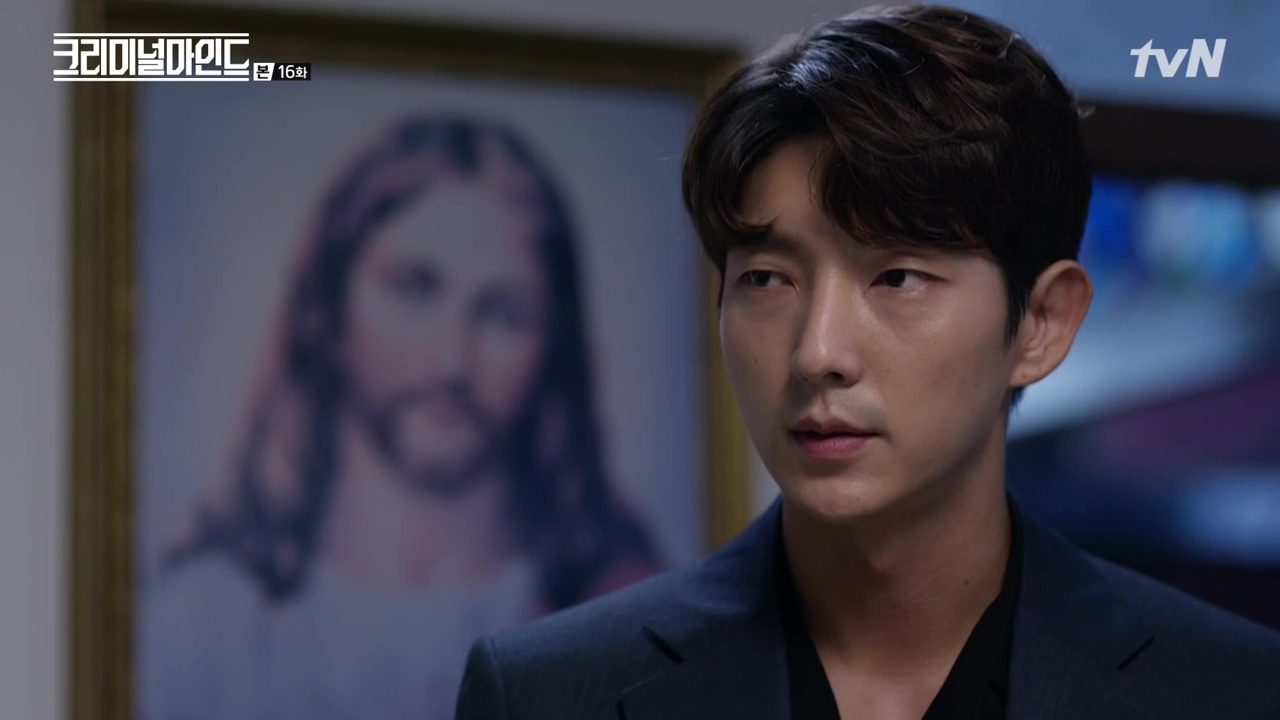
RELATED POSTS
- PD Lee Jung-hyo quits tvN’s Criminal Minds
- Premiere Watch: Falsify, Criminal Minds
- Assembling our profiler team in extended teaser for Criminal Minds
- Criminal Minds promo galore with takedowns and stakeouts
- High-speed chases through the streets of Seoul in new Criminal Minds teaser
- Script read clip and character stills for tvN’s Criminal Minds
- Premiere date and teaser released for Criminal Minds
- Park Shi-eun joins Criminal Minds as Lee Jun-ki’s first love
- Profilers team up to take down serial killers in tvN’s Criminal Minds
- Lee Jun-ki’s tense gun standoff in first stills for Criminal Minds
Tags: Criminal Minds, Lee Jun-ki, Moon Chae-won, Sohn Hyun-joo
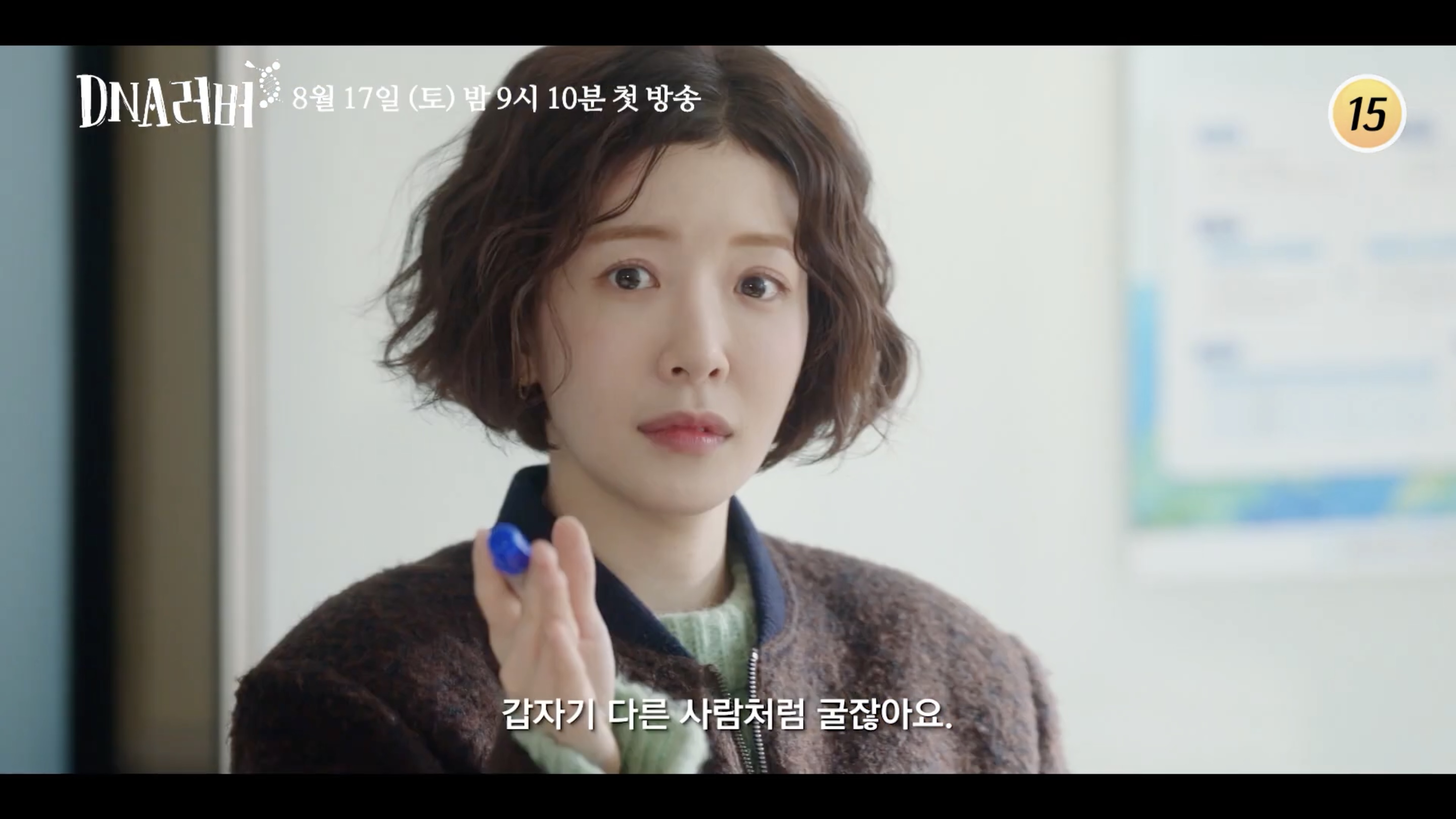
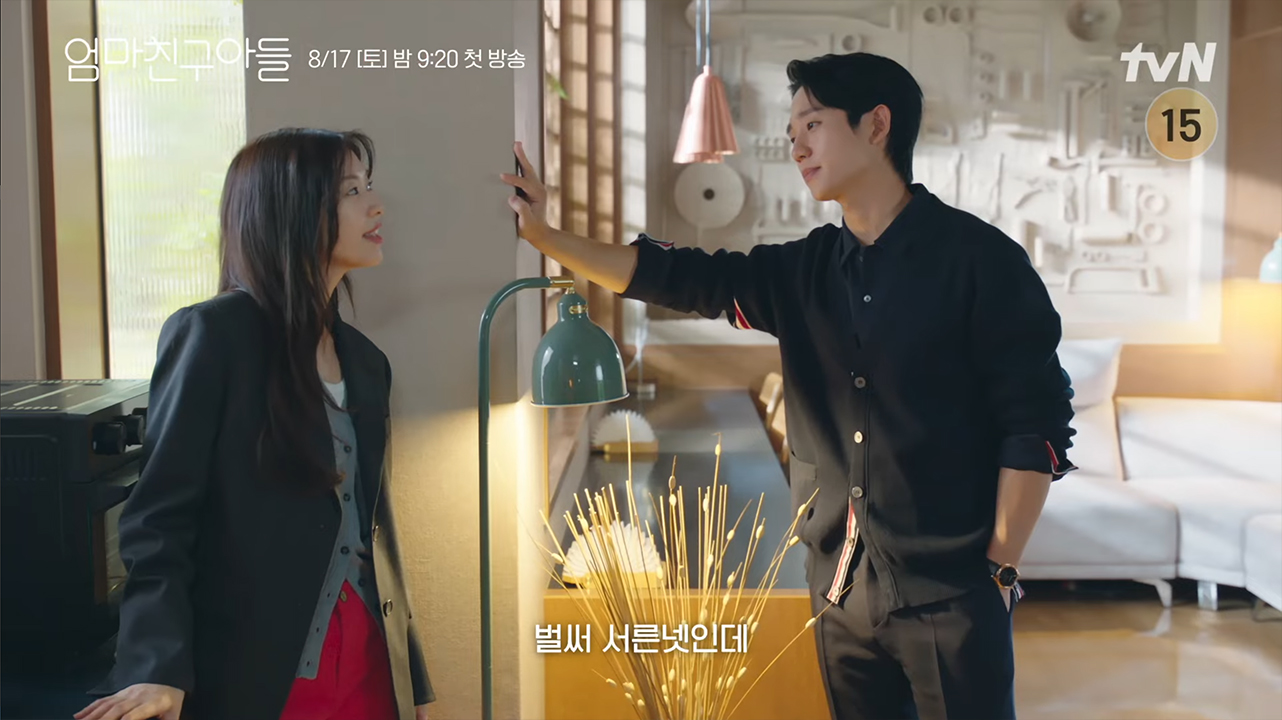
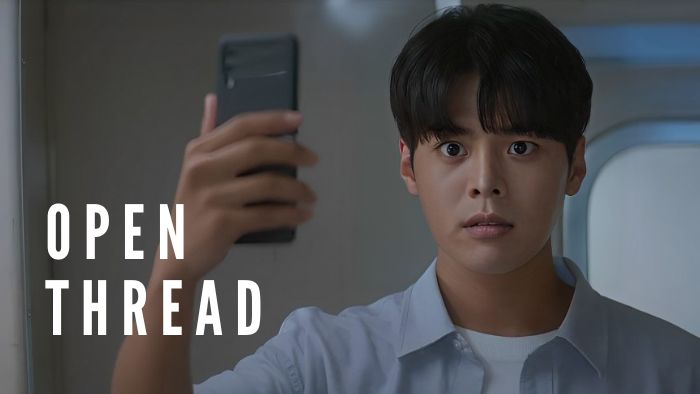
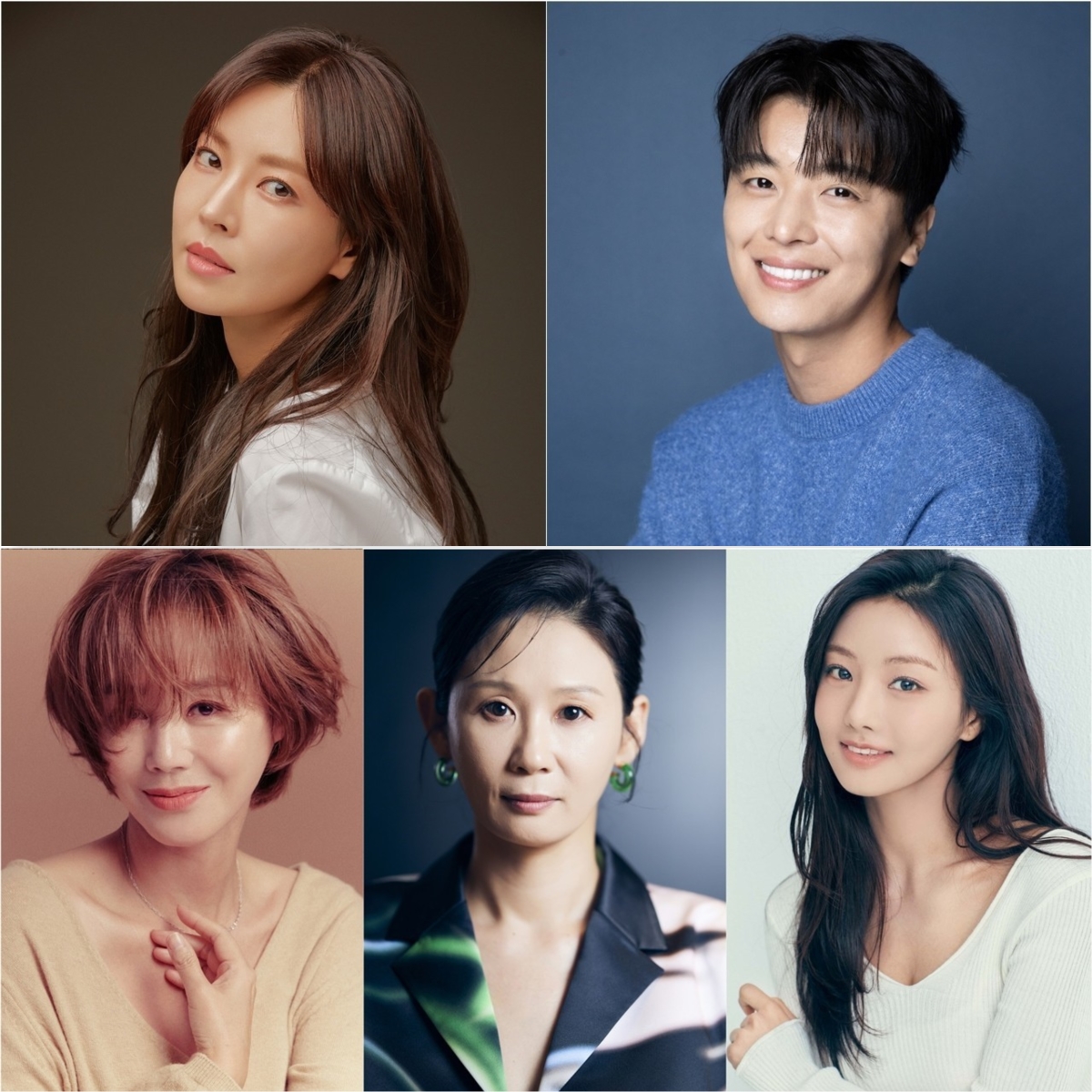
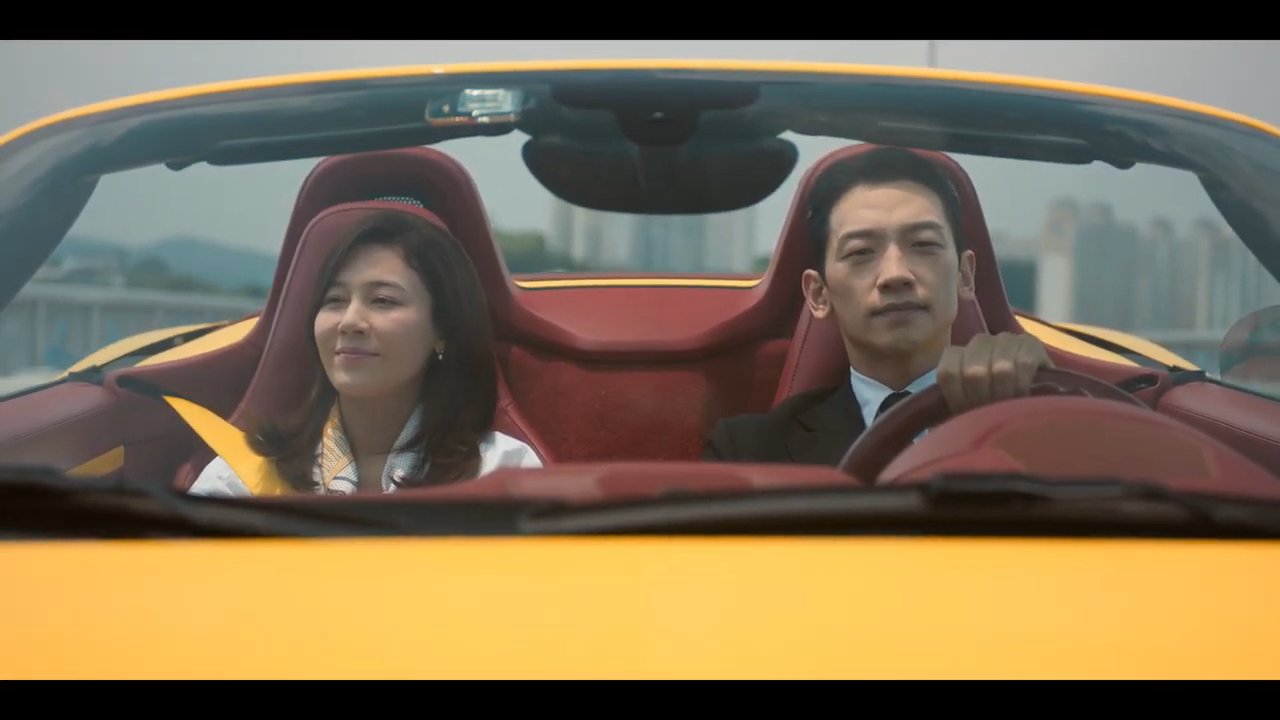
![[Cast Away] A conwoman is possessed by an upright politician](https://d263ao8qih4miy.cloudfront.net/wp-content/uploads/2023/09/castaway_header1.png)

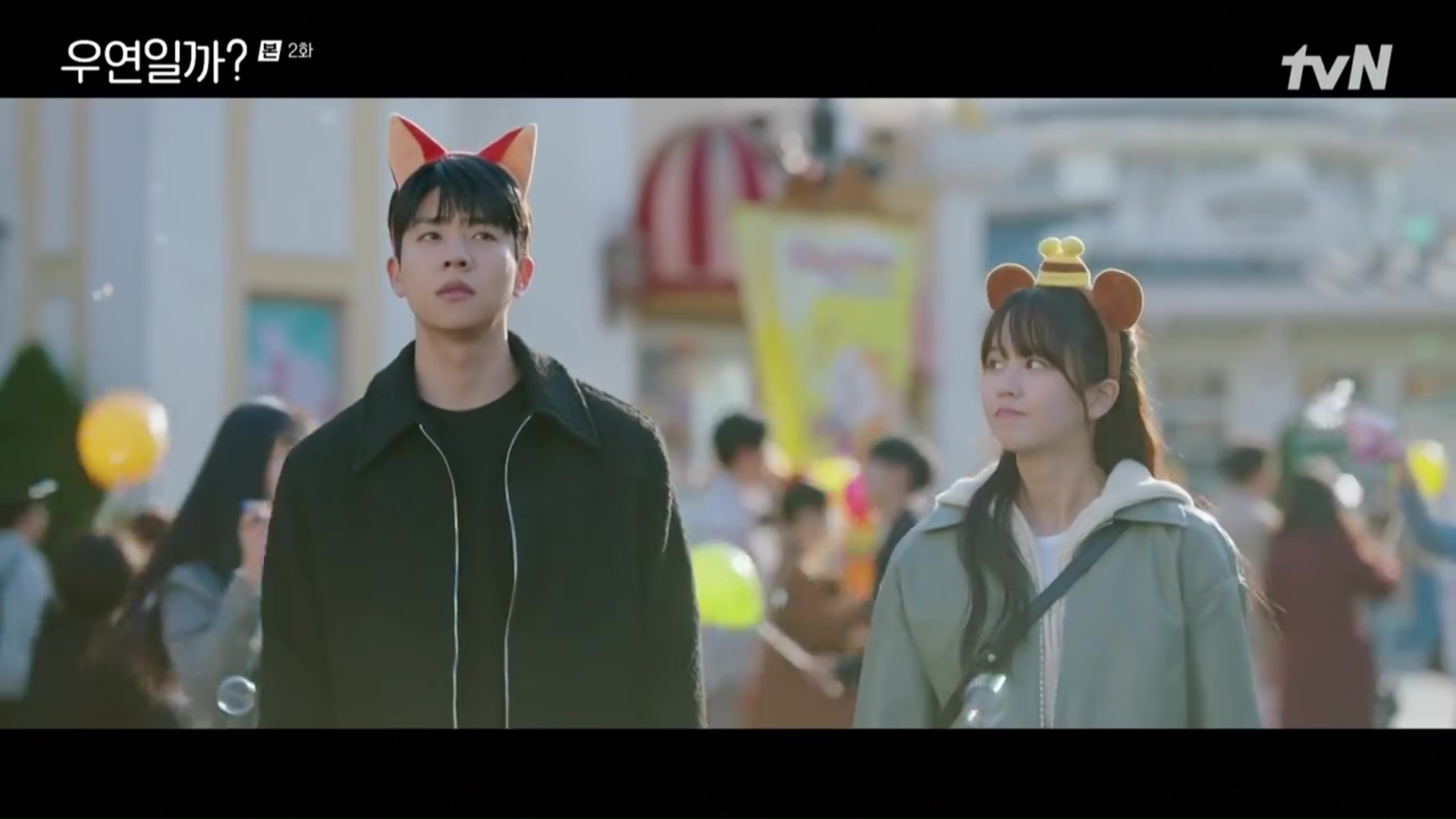
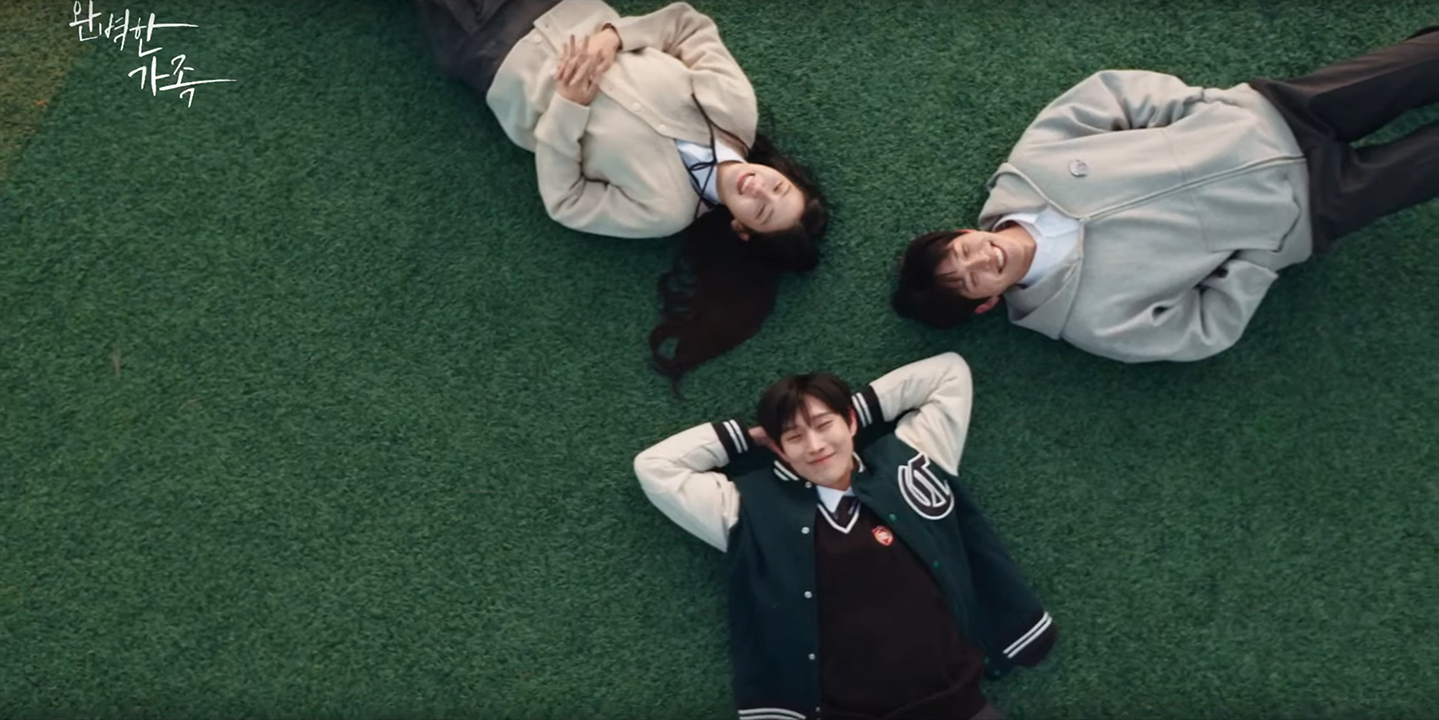
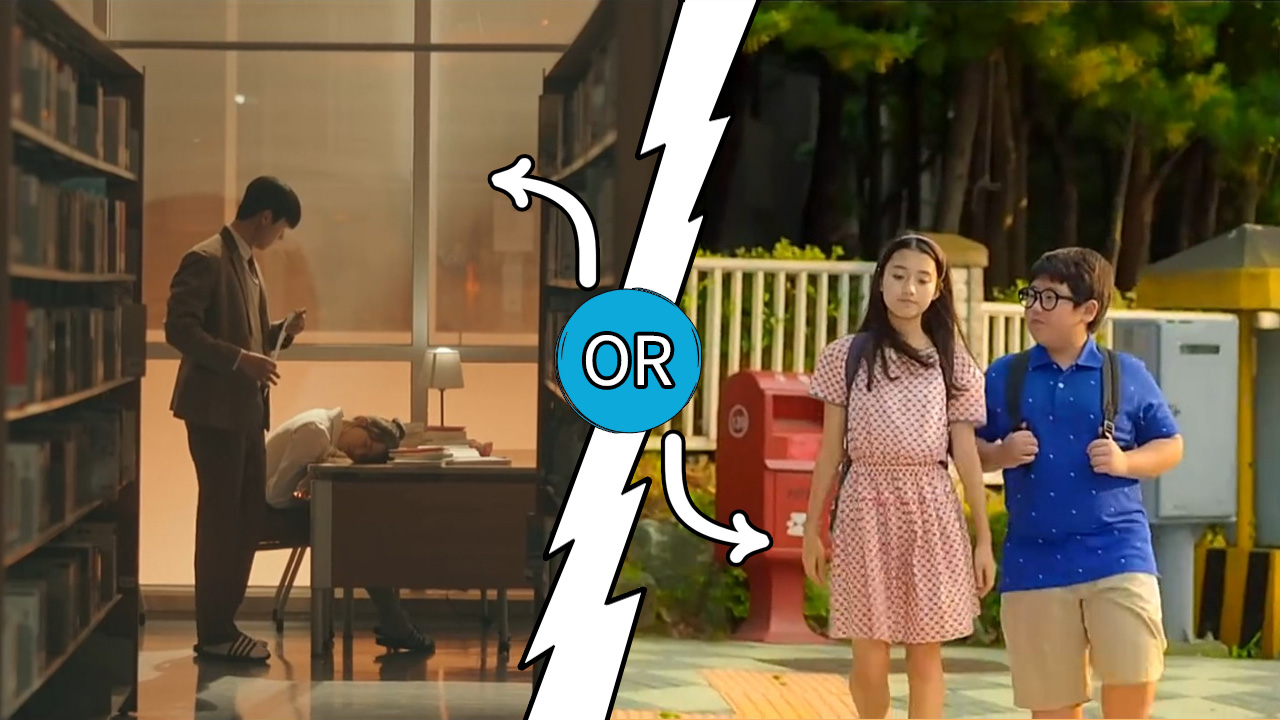
Required fields are marked *
Your email address will not be published. Required fields are marked *
1 Pei
September 17, 2017 at 10:25 PM
Thanks for the recap @saya
Delusional vigilante.... well, true that law sometimes can't give a fair justice to the victims but doesn't mean that it can justify the suspect murder. But the guy is delusional due to his almost-die experience plus he felt that his family murderer should be apologized to him rather than God. It shaken his faith, which is why he broke the cross.
I don’t see that the session with Reporter Han is necessary, he simply become another unfit-suspect as we already know that the suspect is someone who can access law court easily. I don’t think a reporter always got access for every court.
About the killer shot, man….didn’t fell it was necessary. The cop can just simply shot the hand or probably shoulder, the guy was only using a knife! Well, maybe the cop just don’t have great shooting skill like Hyun-joon ?
Last murder victim, I dare to say that he actually guilty. Given that smug smile at the end…. Urgh, creepy.
Required fields are marked *
persianrose❤️战哥
September 19, 2017 at 9:10 AM
@xiupei, I was also wondering why the Reporter Han session was necessary, it was so out of place!! and yes all kdramas tend to show normal cop as unskilled as possible... they can simply shot the hand or shoulder...
Required fields are marked *
2 meera17817
September 18, 2017 at 11:18 AM
Nice show.....
Looking forward for the next mysteries....
Required fields are marked *
3 persianrose❤️战哥
September 19, 2017 at 9:04 AM
Thanks for the recap @saya
This show’s strange editing decisions is still surprising me because it was not completely pre-produced and they had a chance to fix the problem. All acting are really good, all cases are interesting enough to keep the audiences engage, but they start a new case in the middle of episode and desensitized the effect of previous case. I wish each episode had 45 min for new case and 15 min for team interaction and their own struggles… Nevertheless, the question of justice vs. law is always interesting and it was explored very well in this episode....
Required fields are marked *